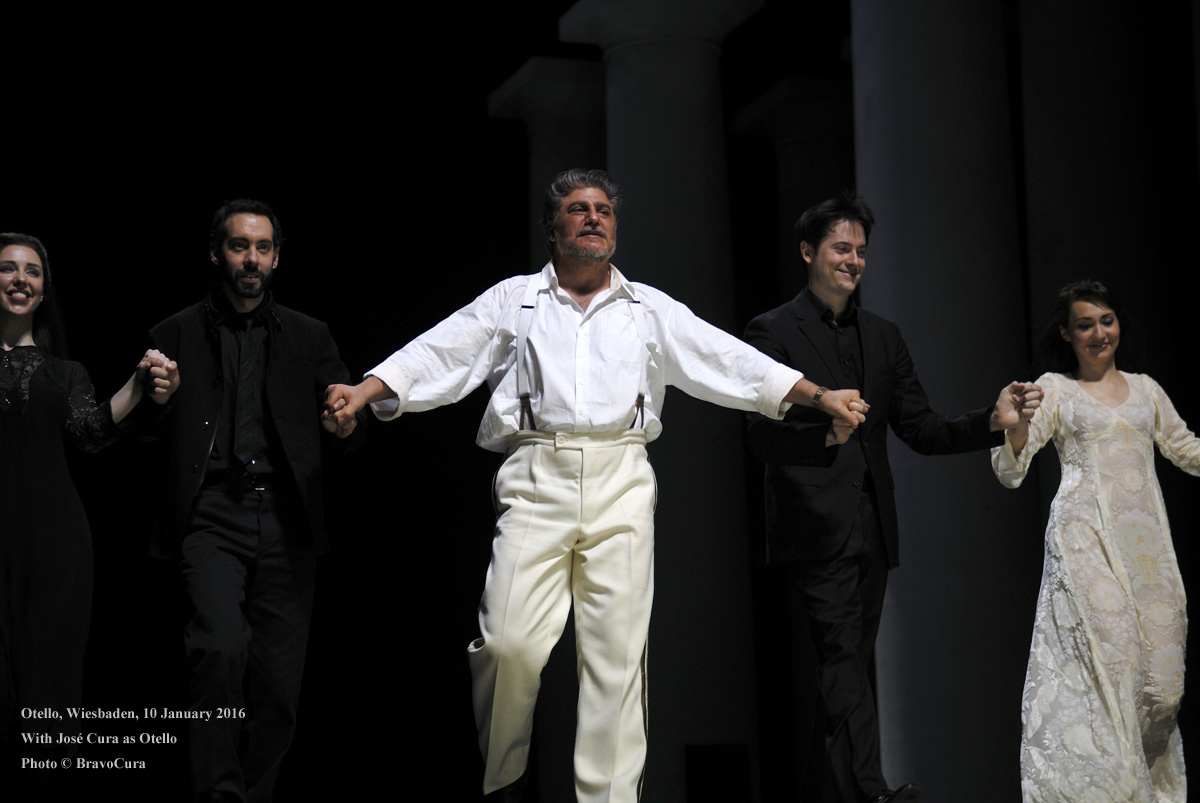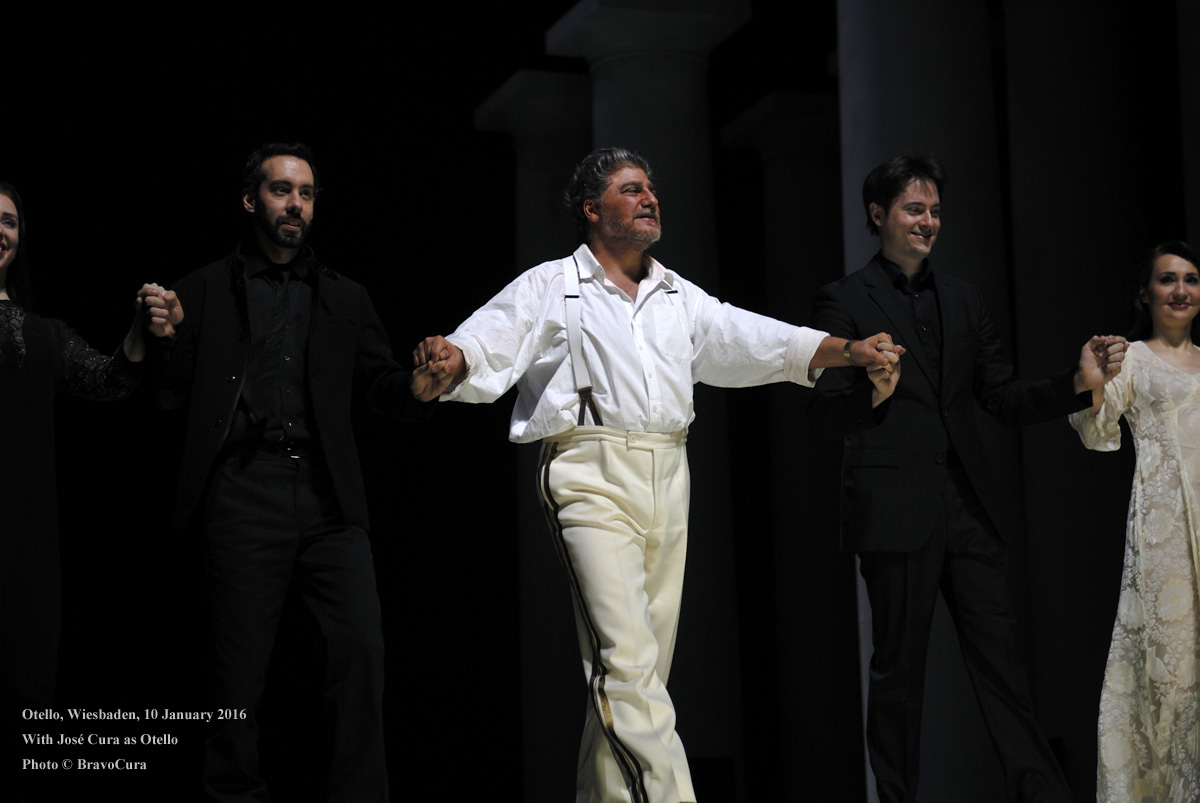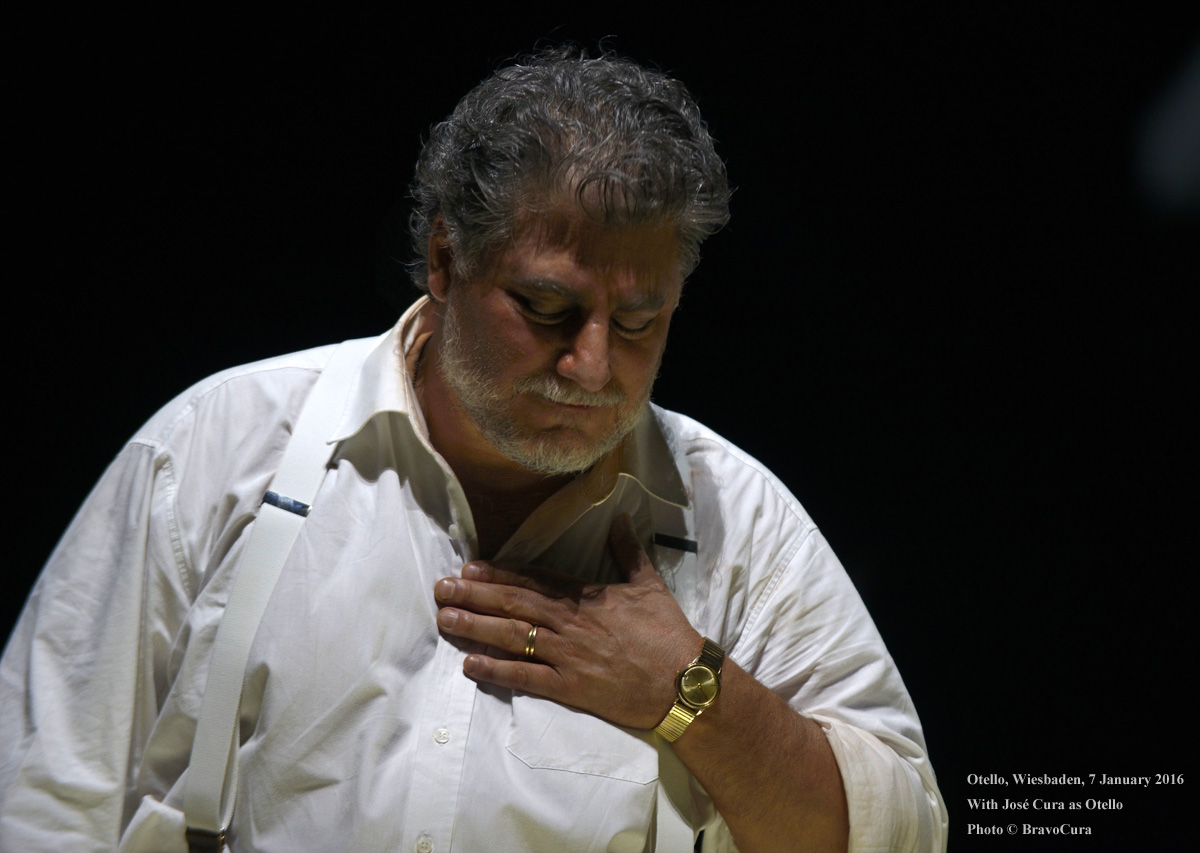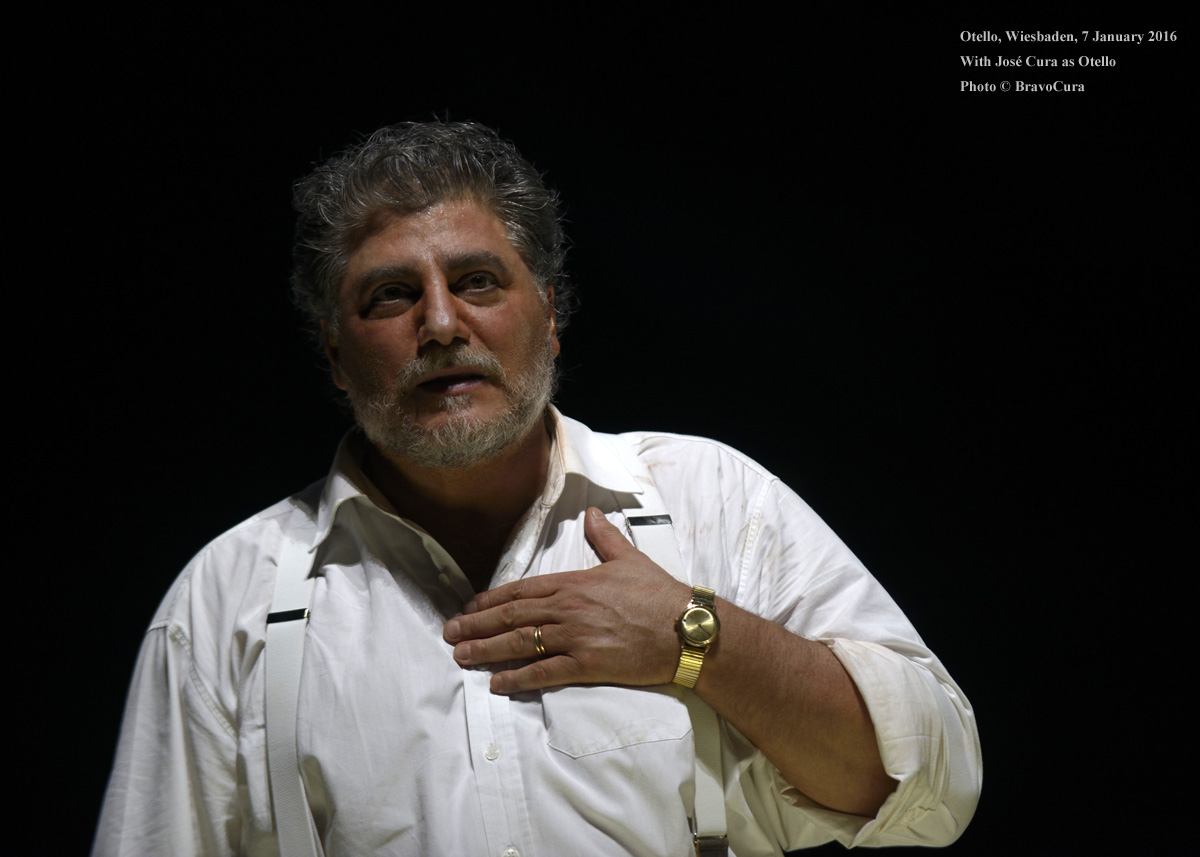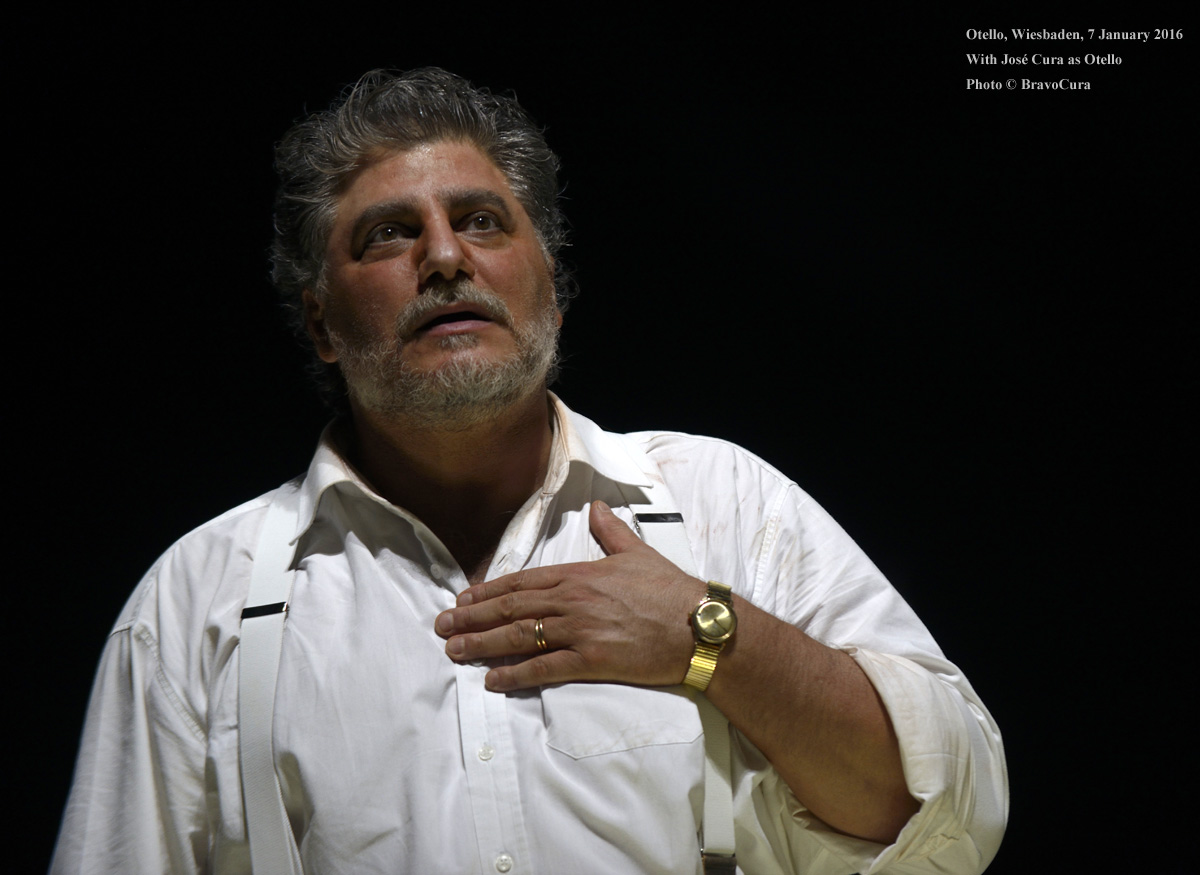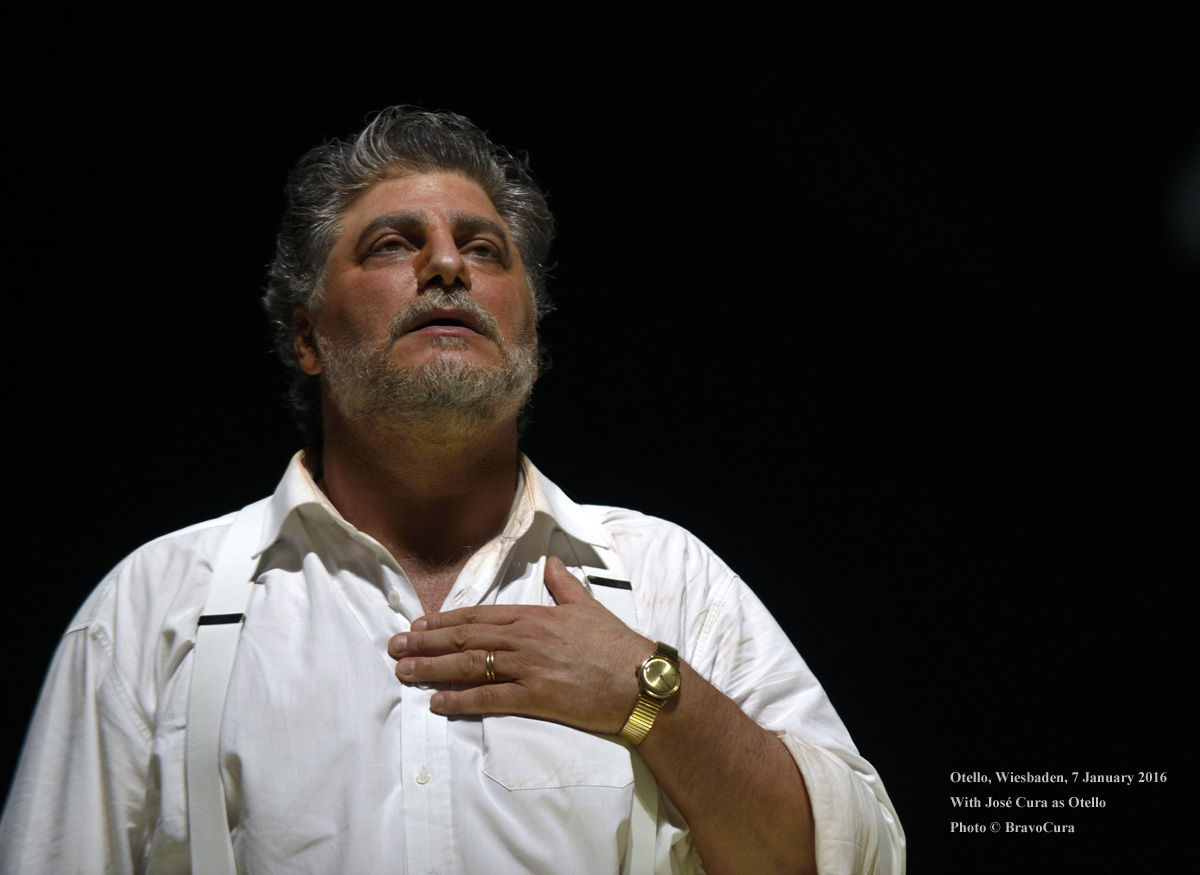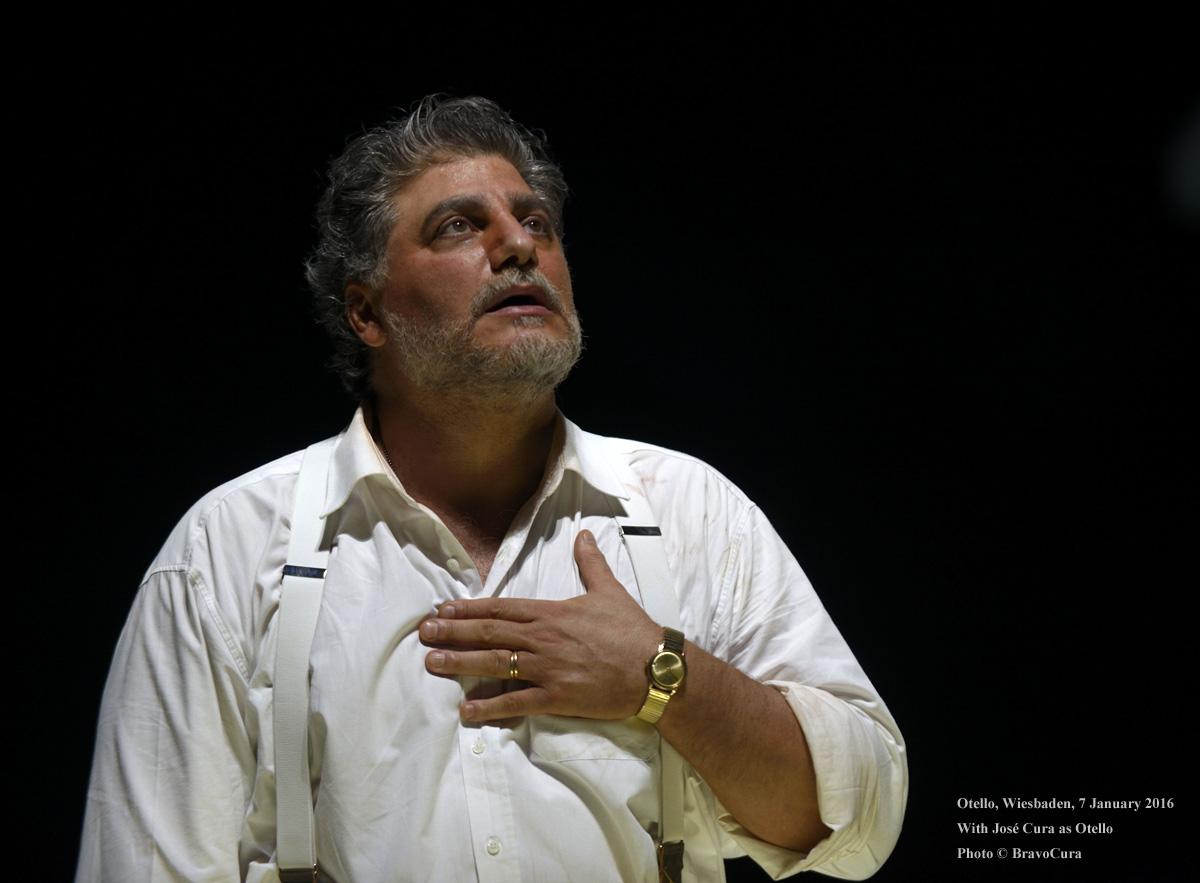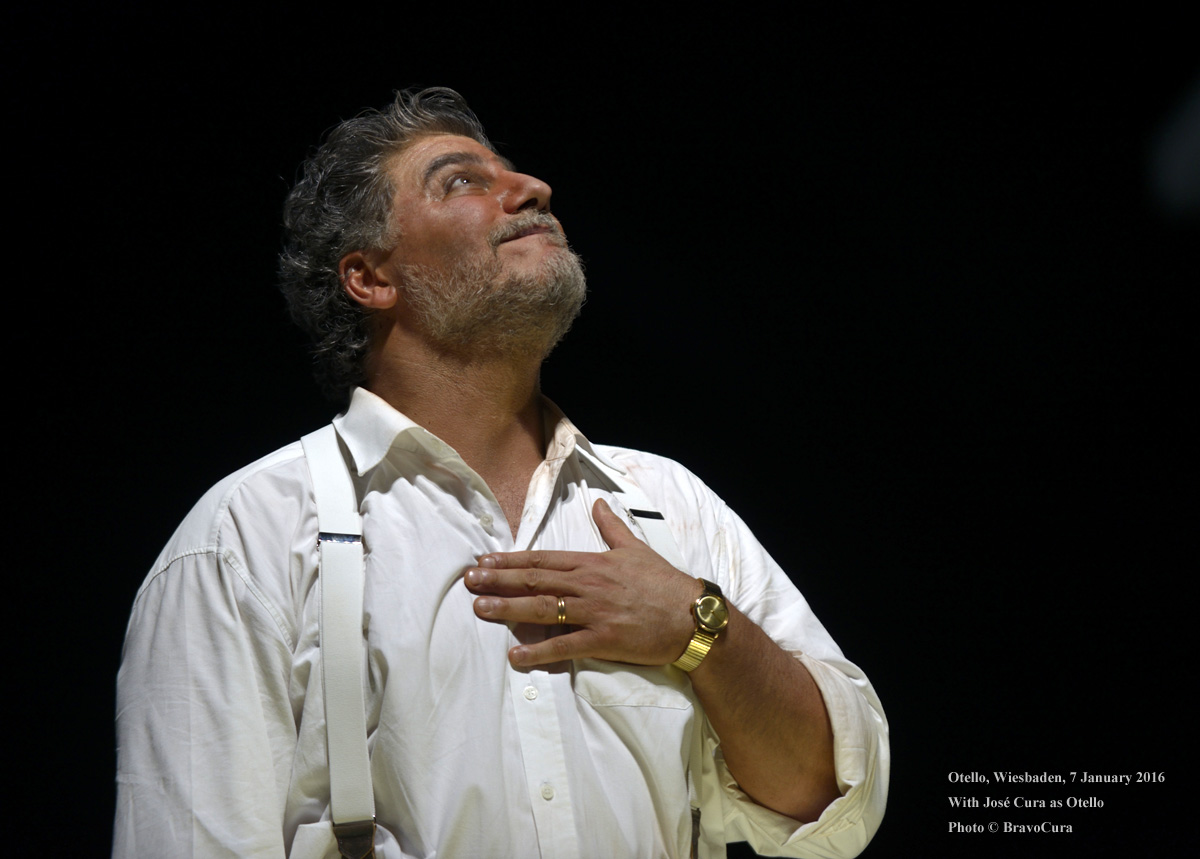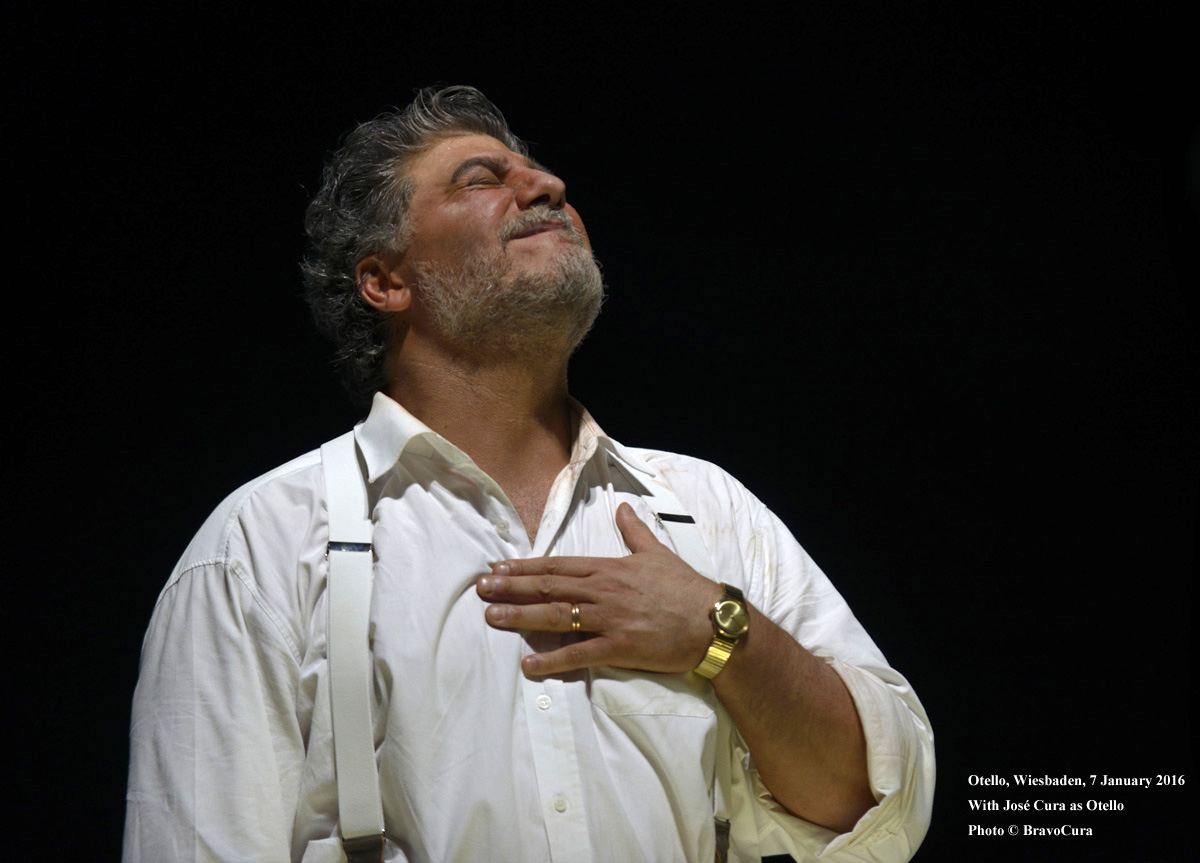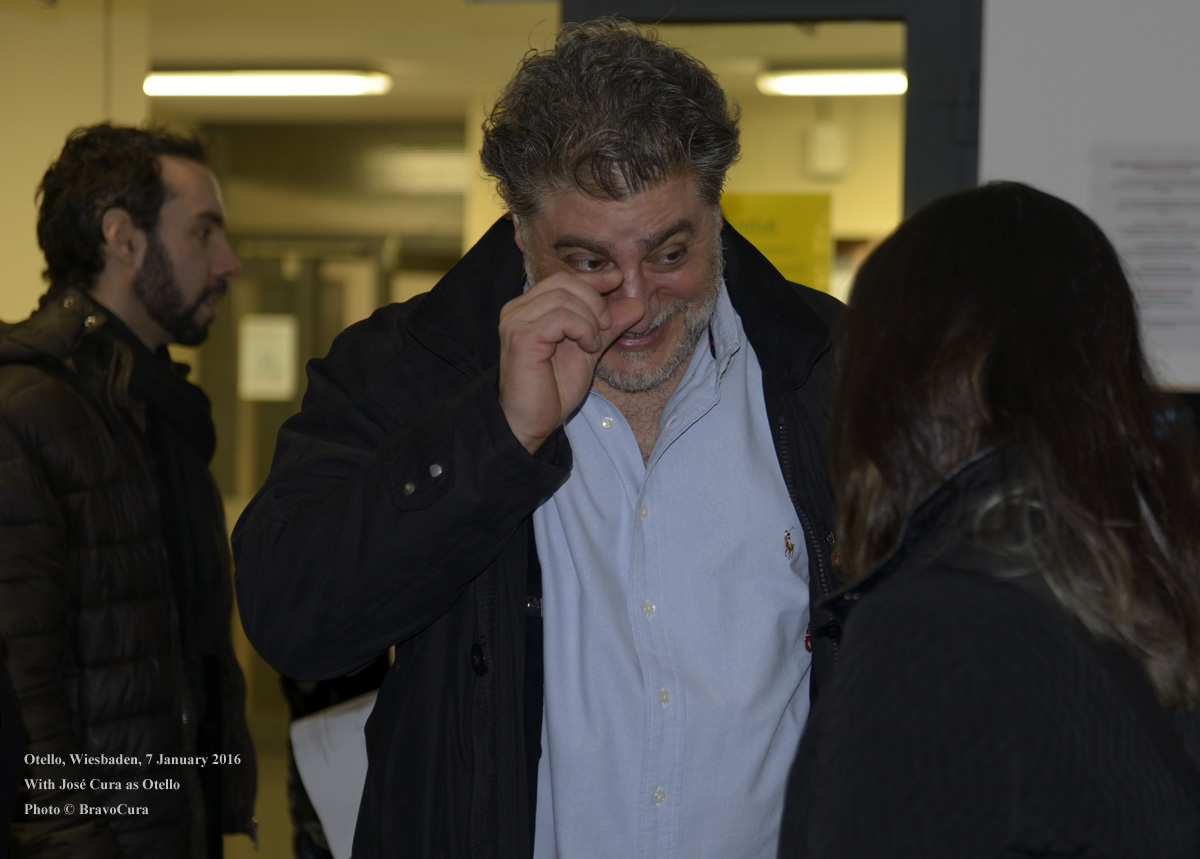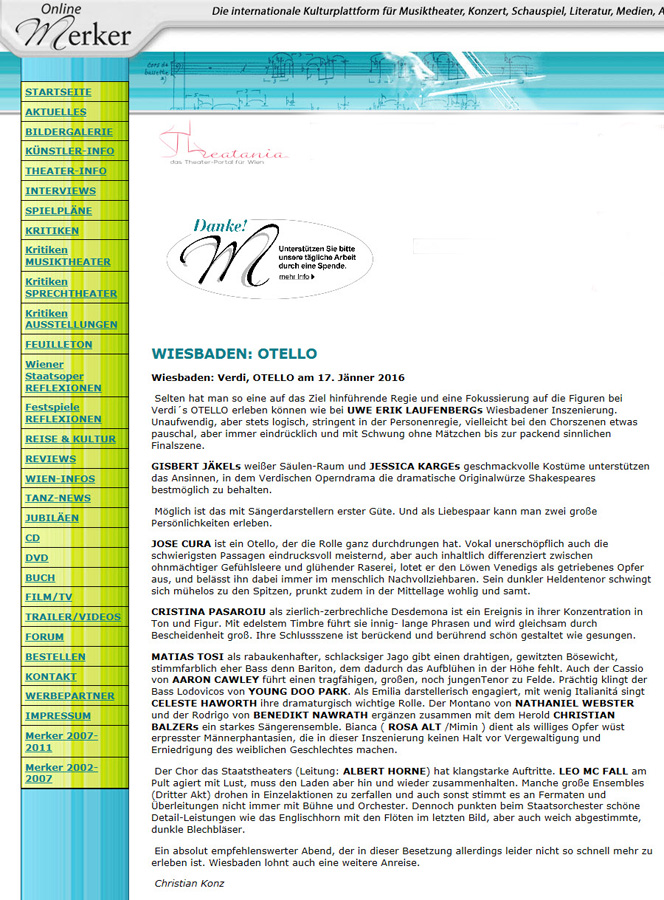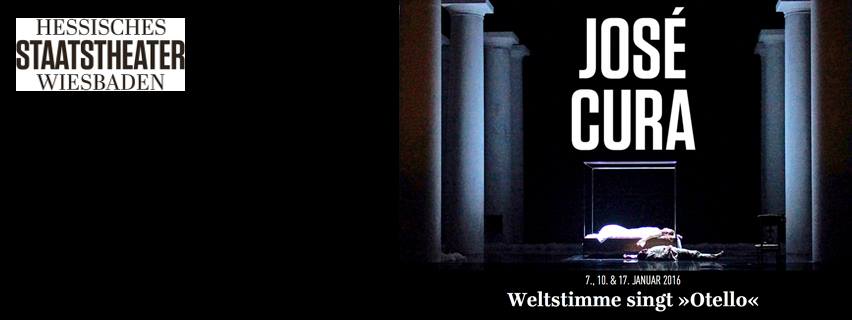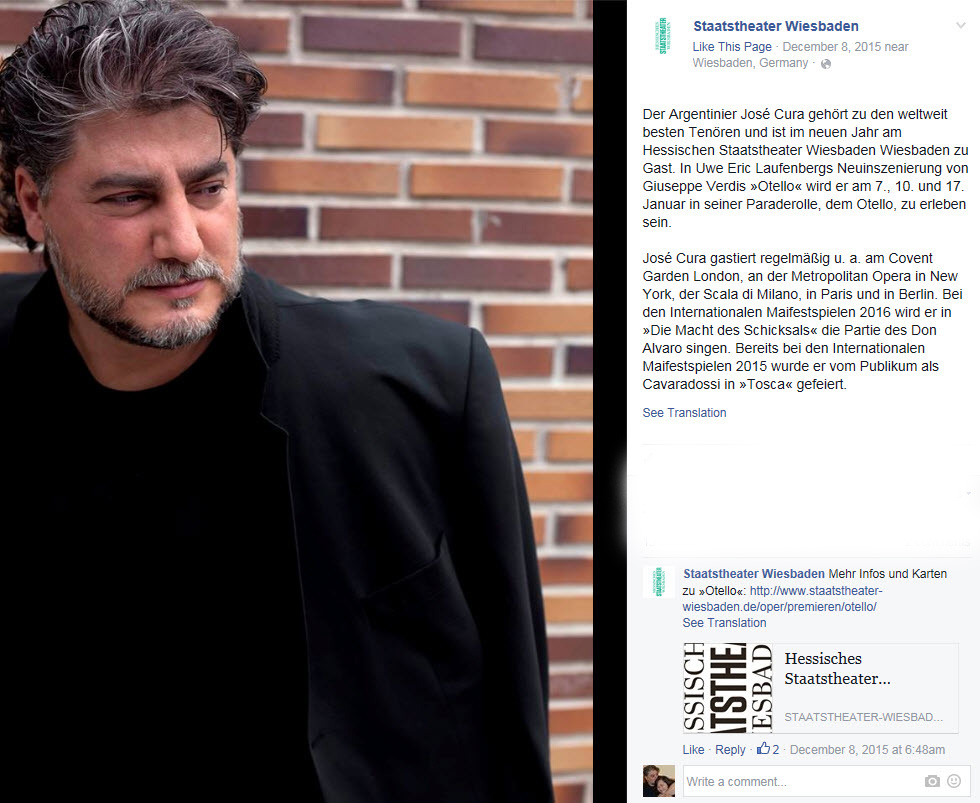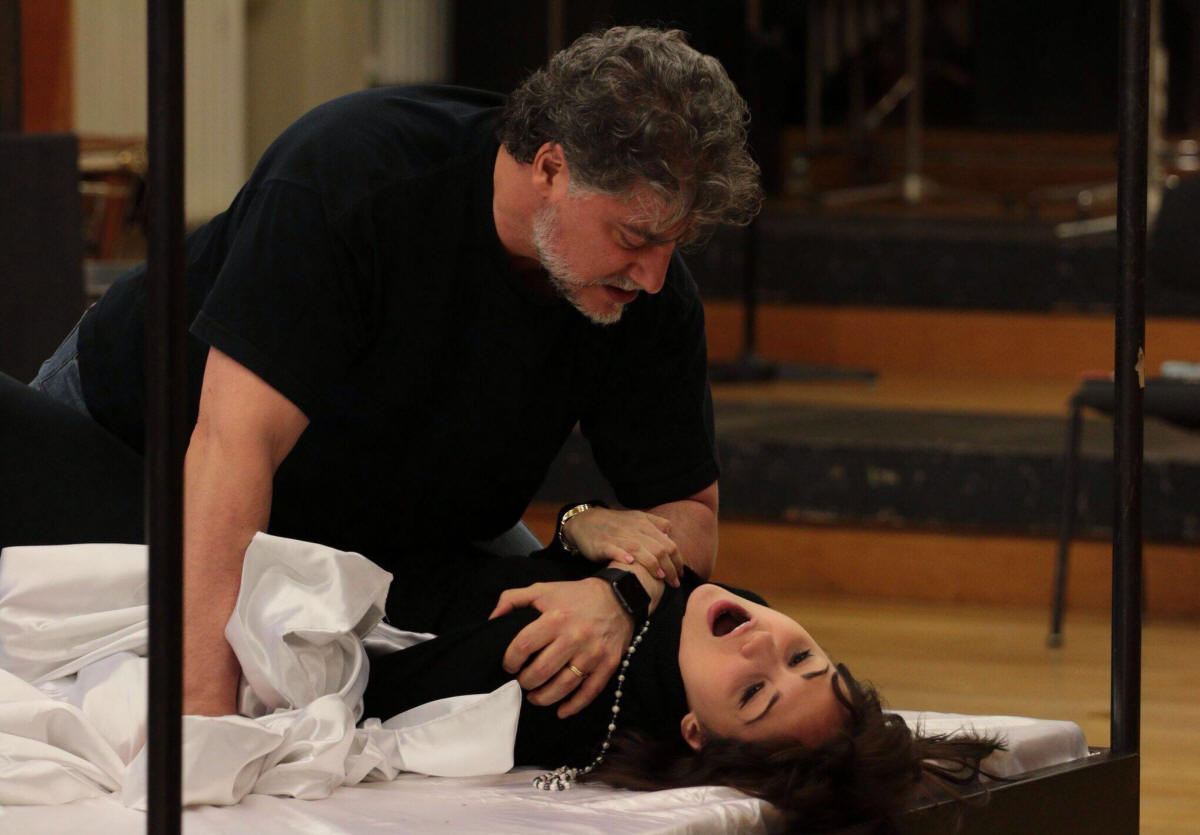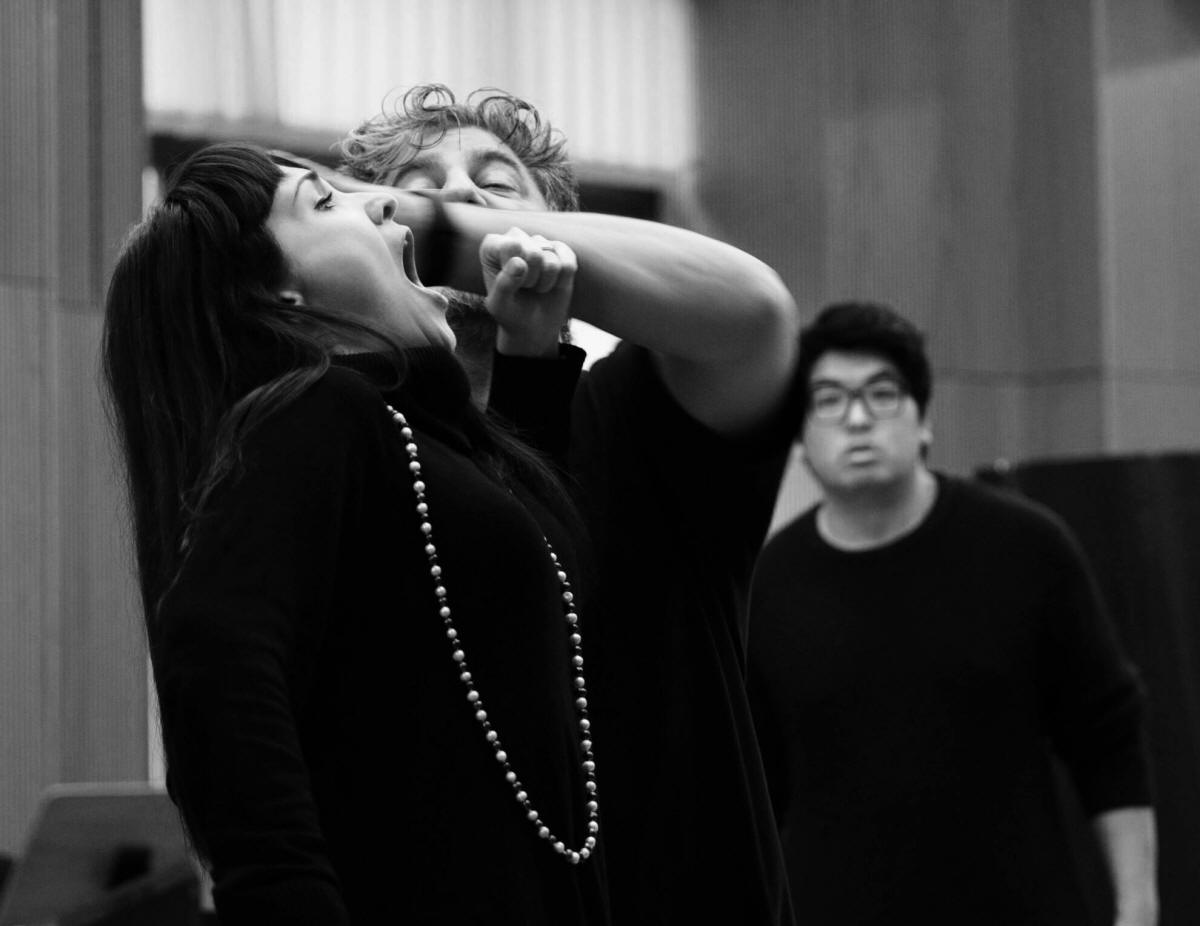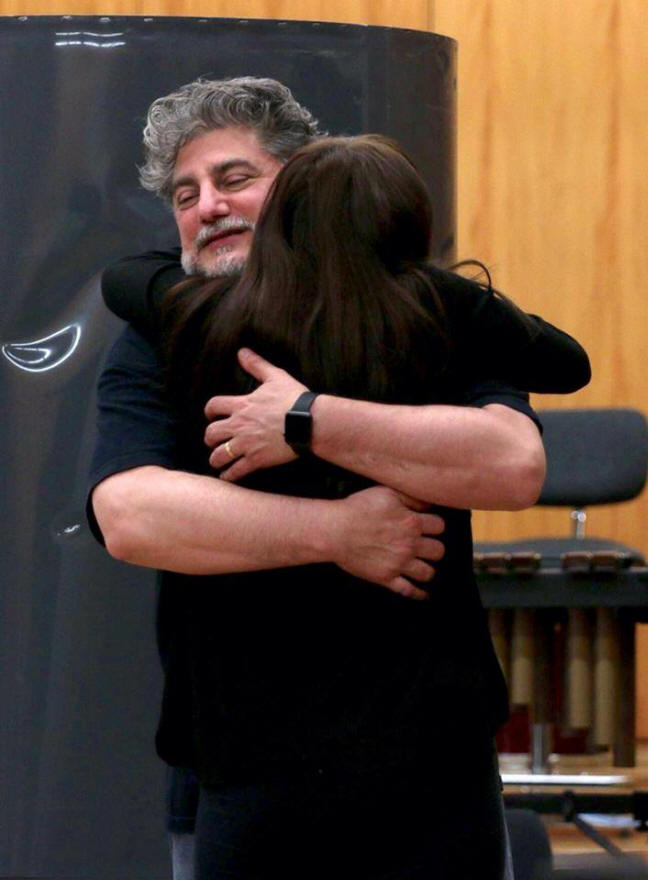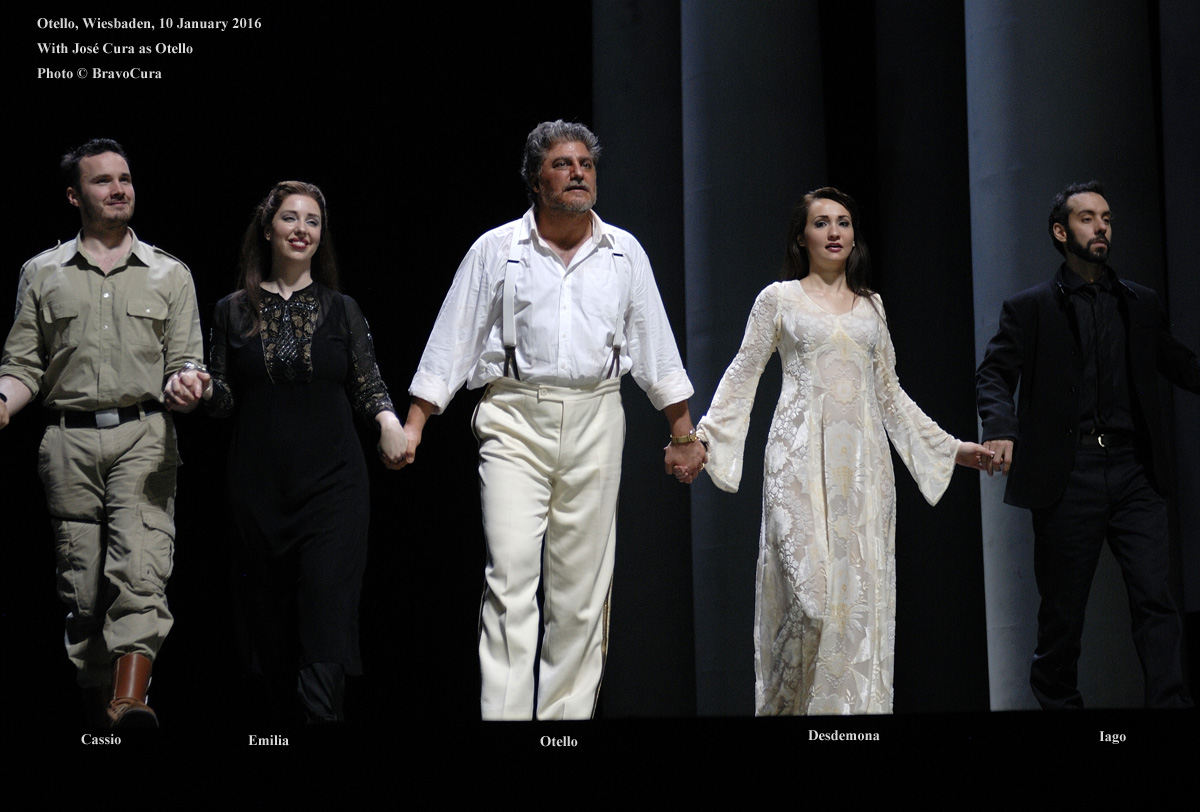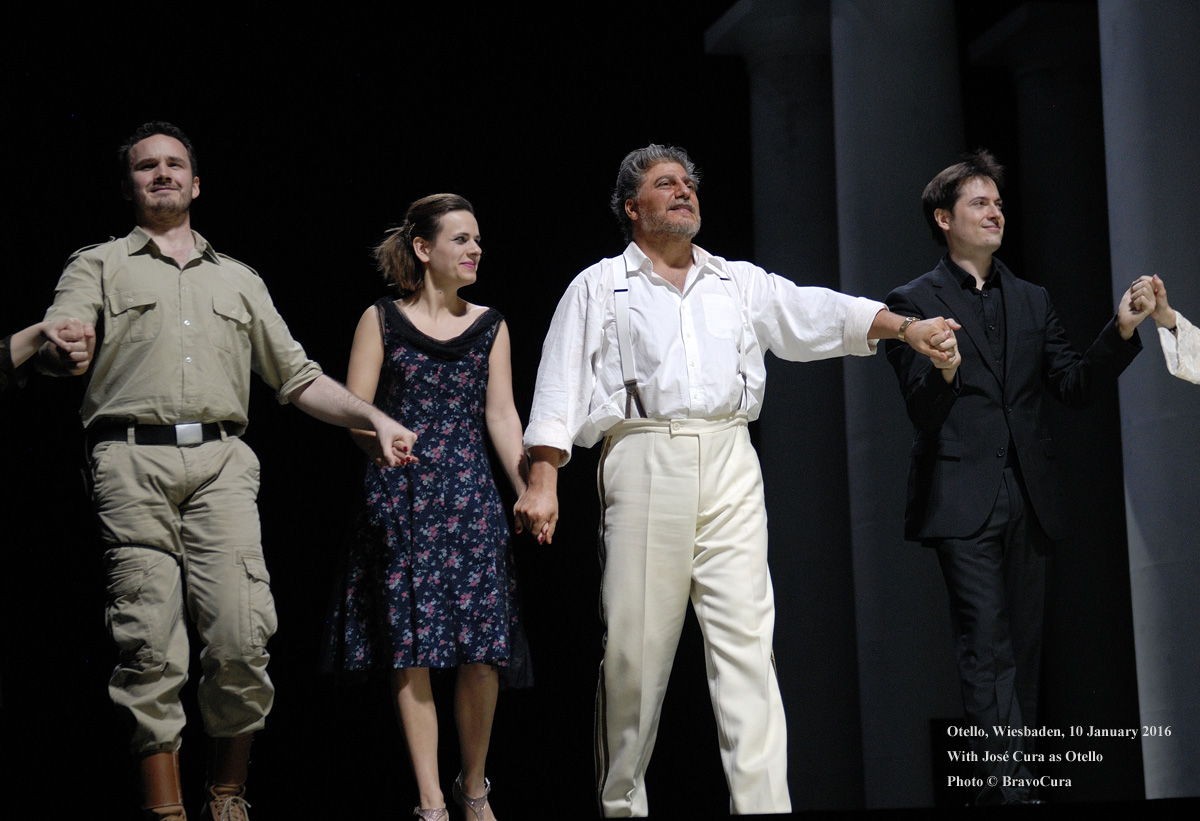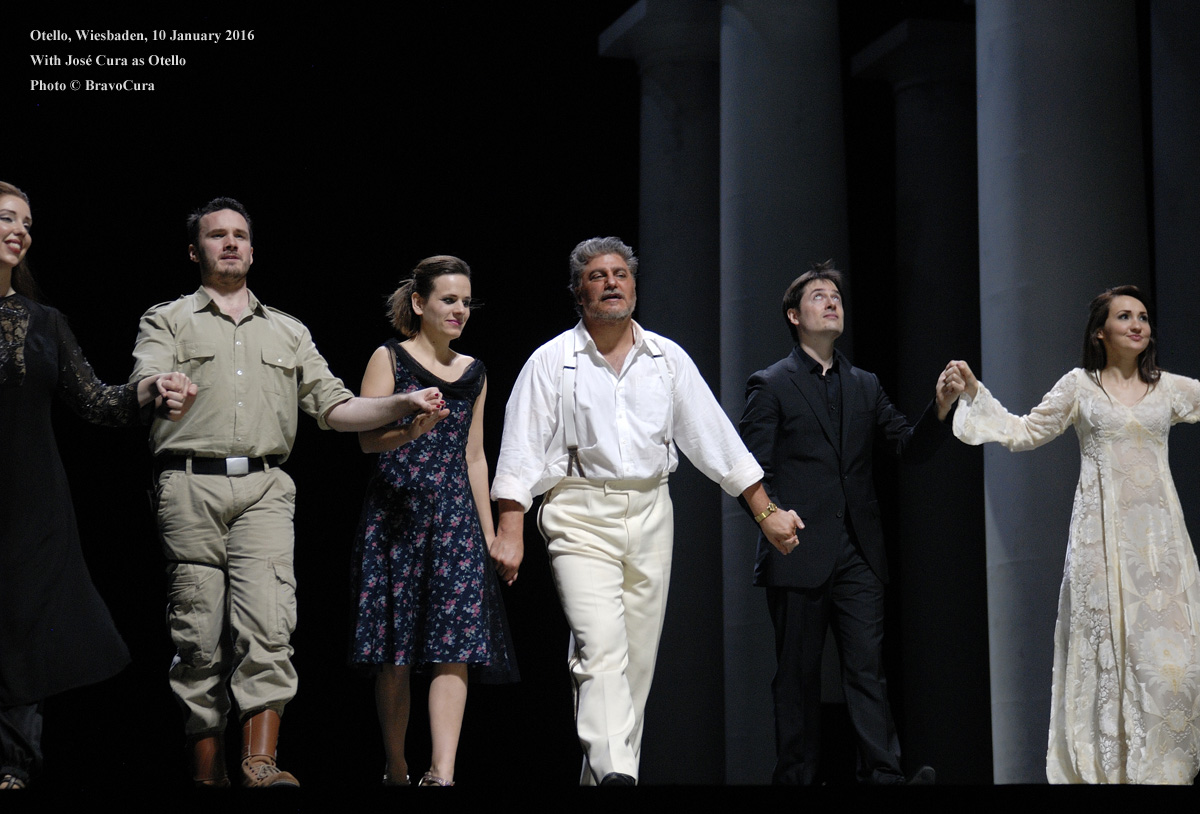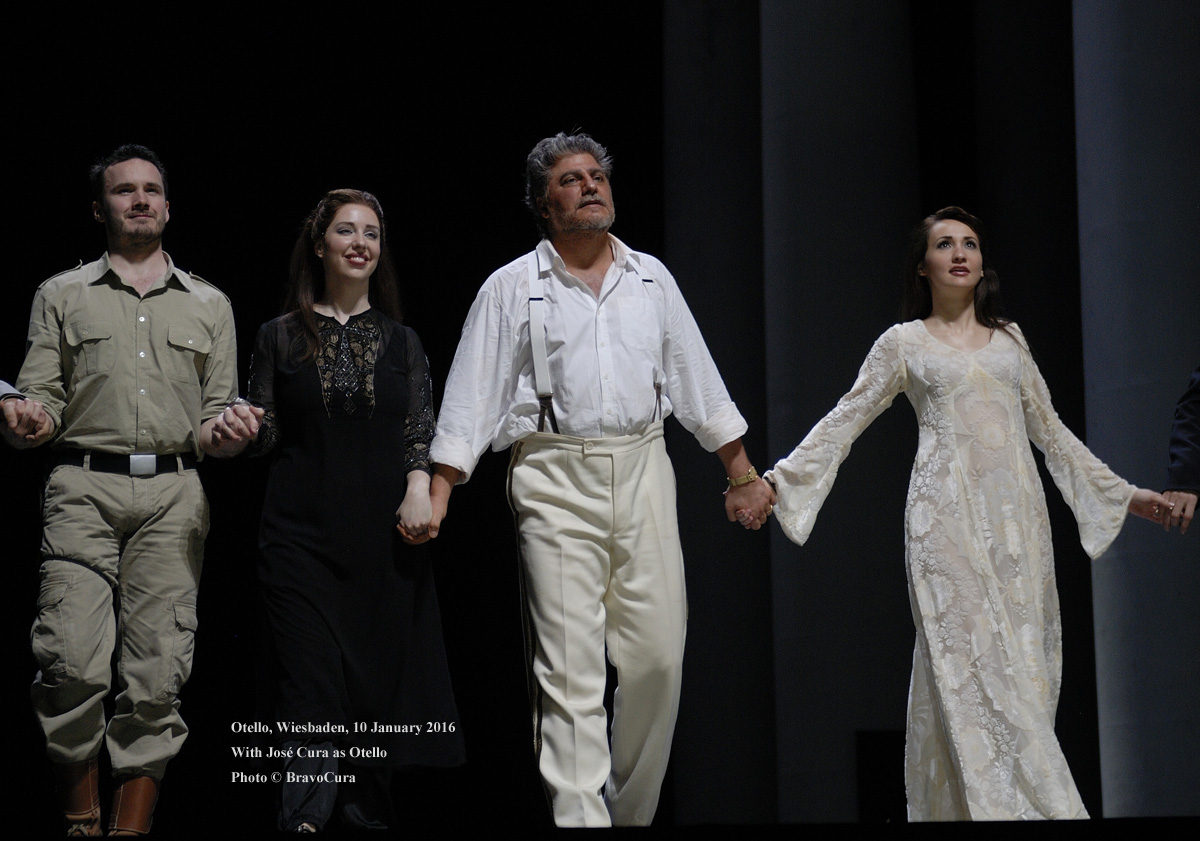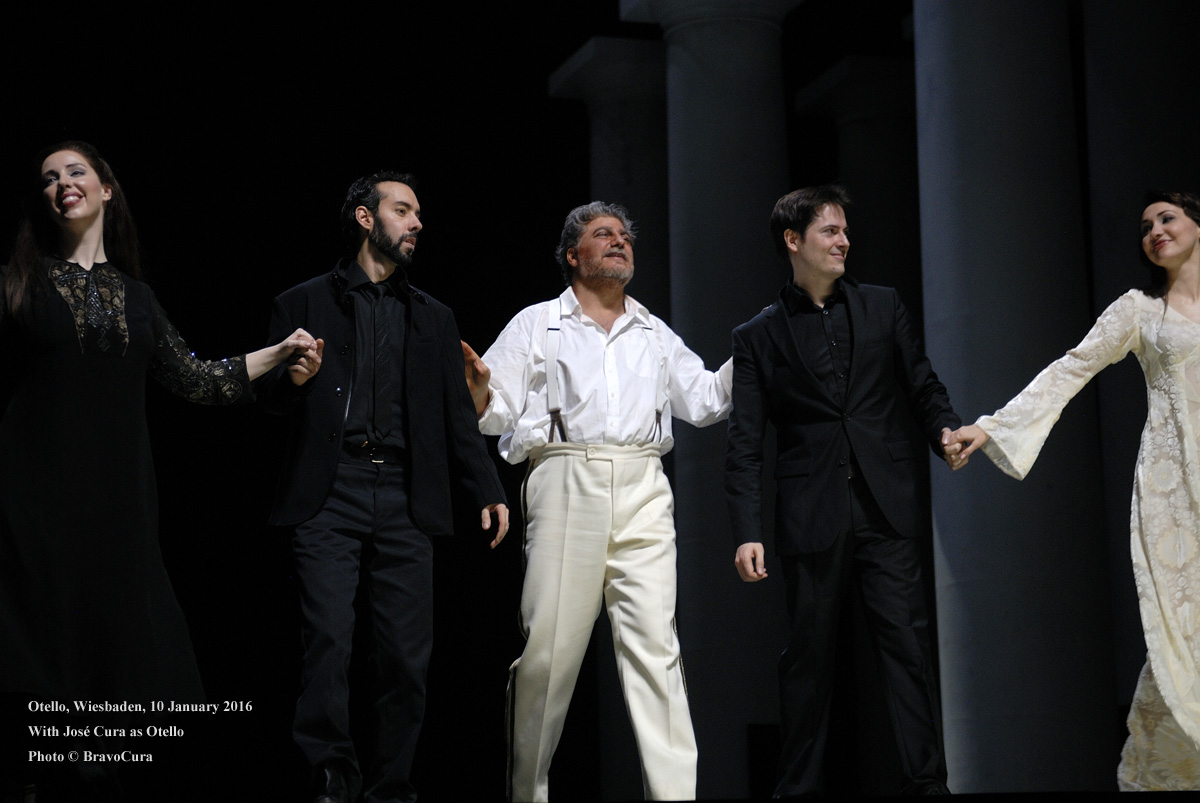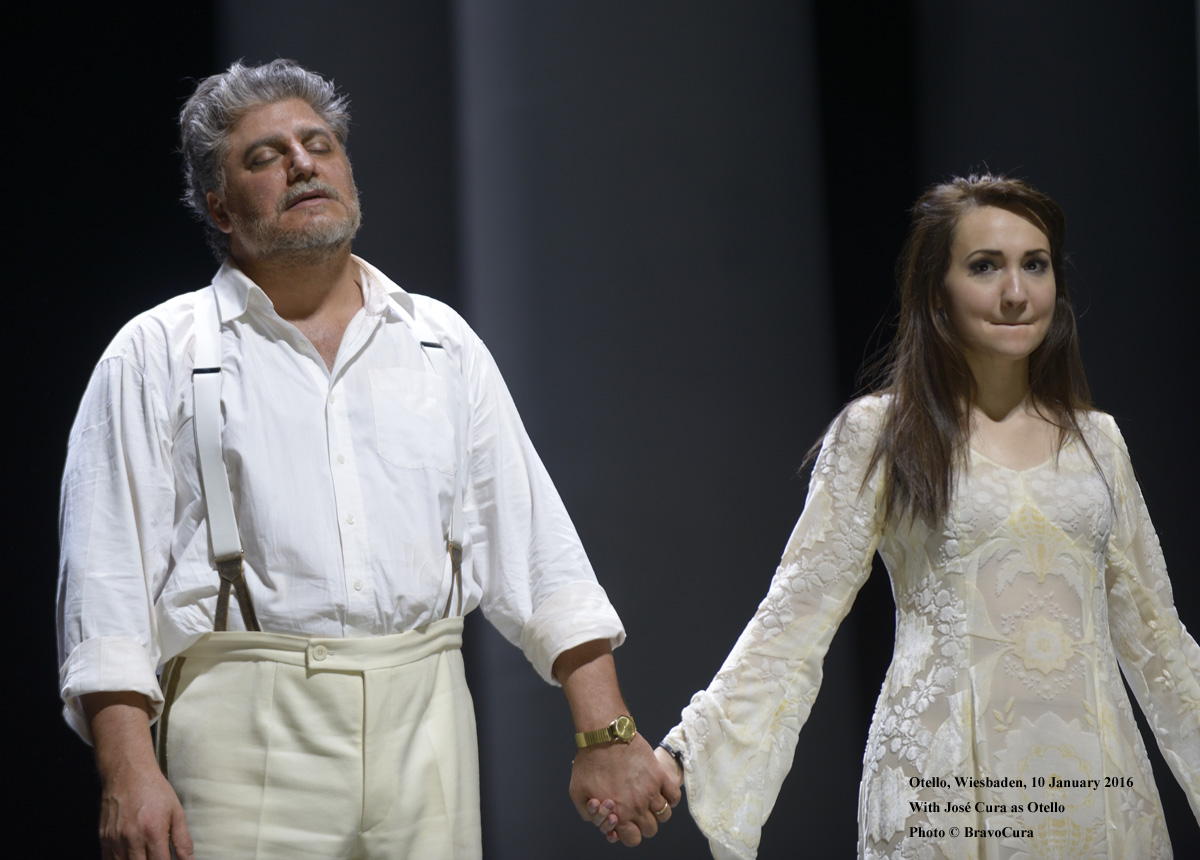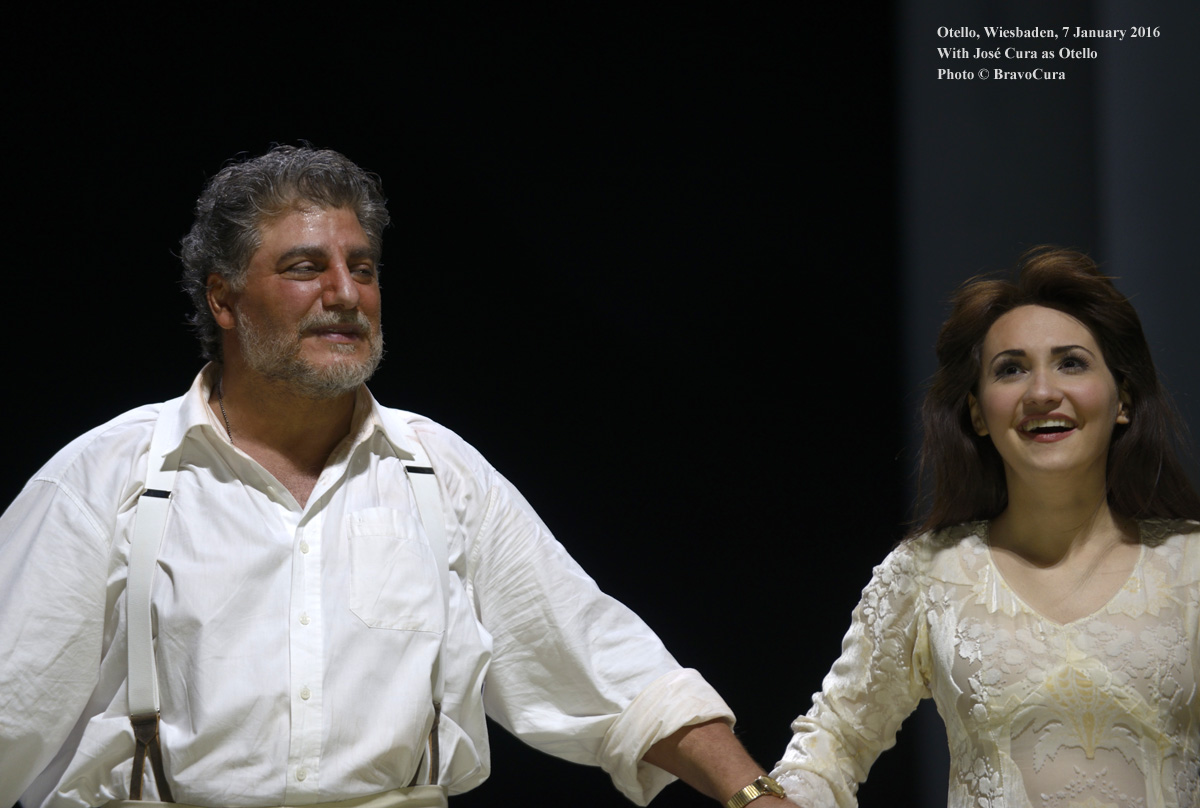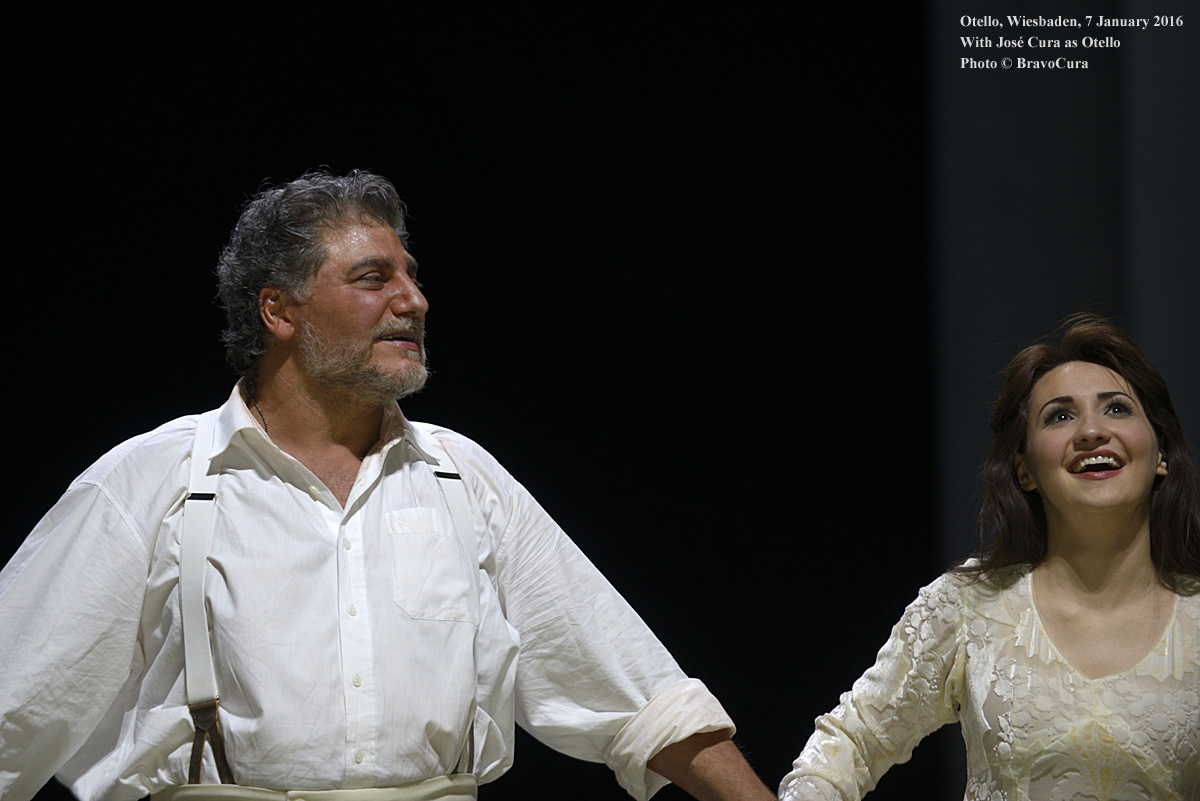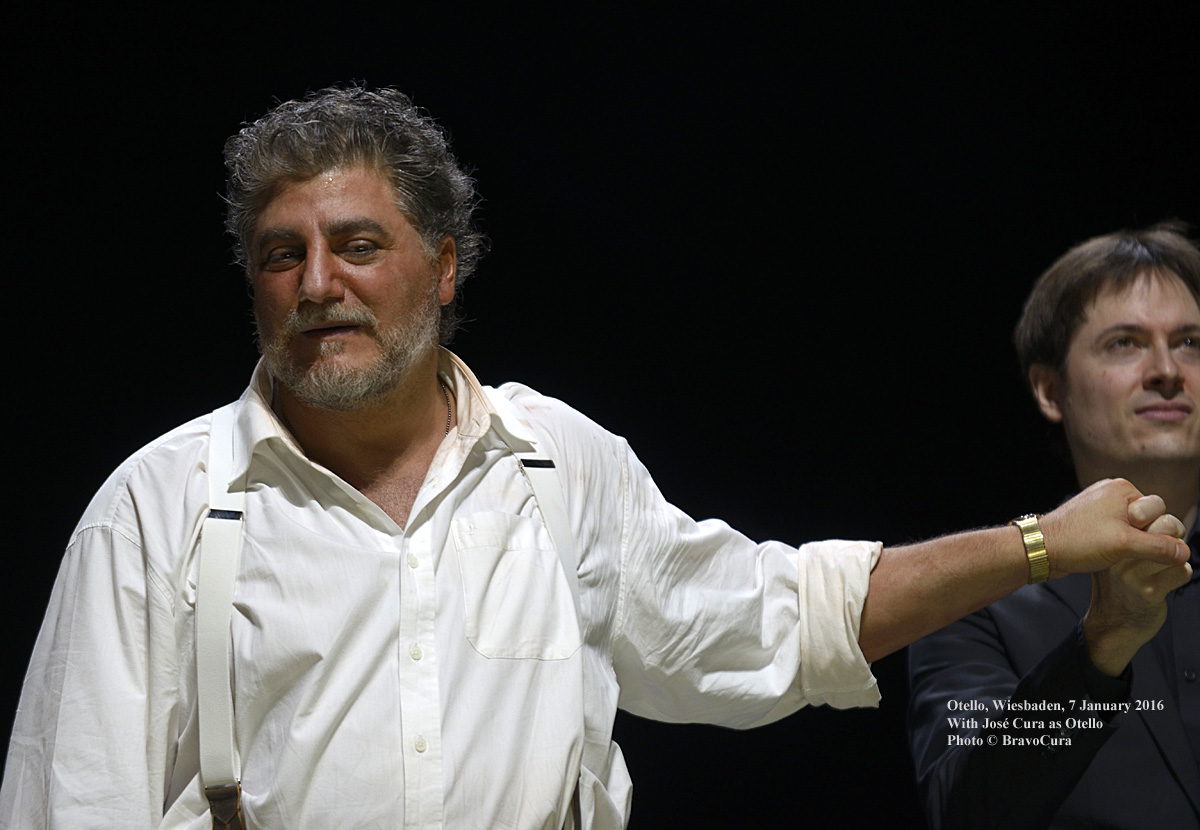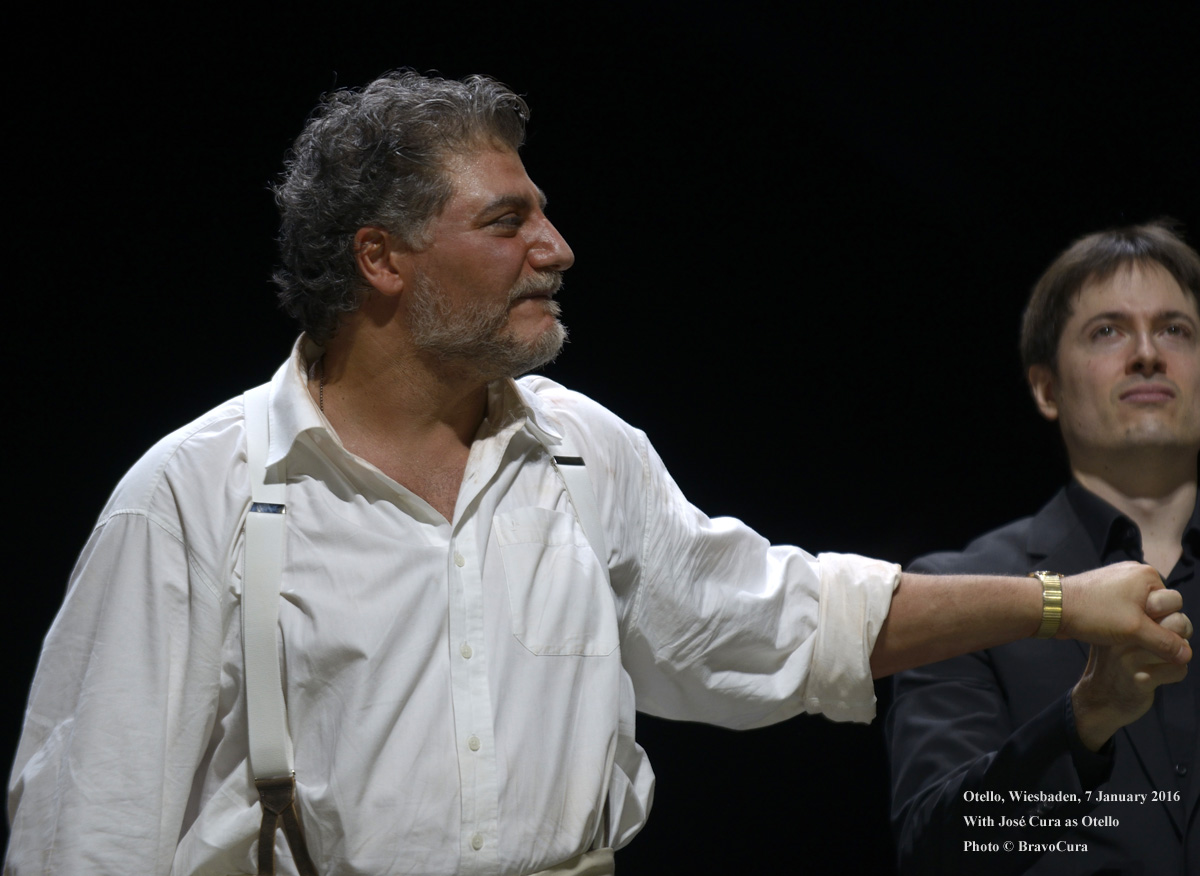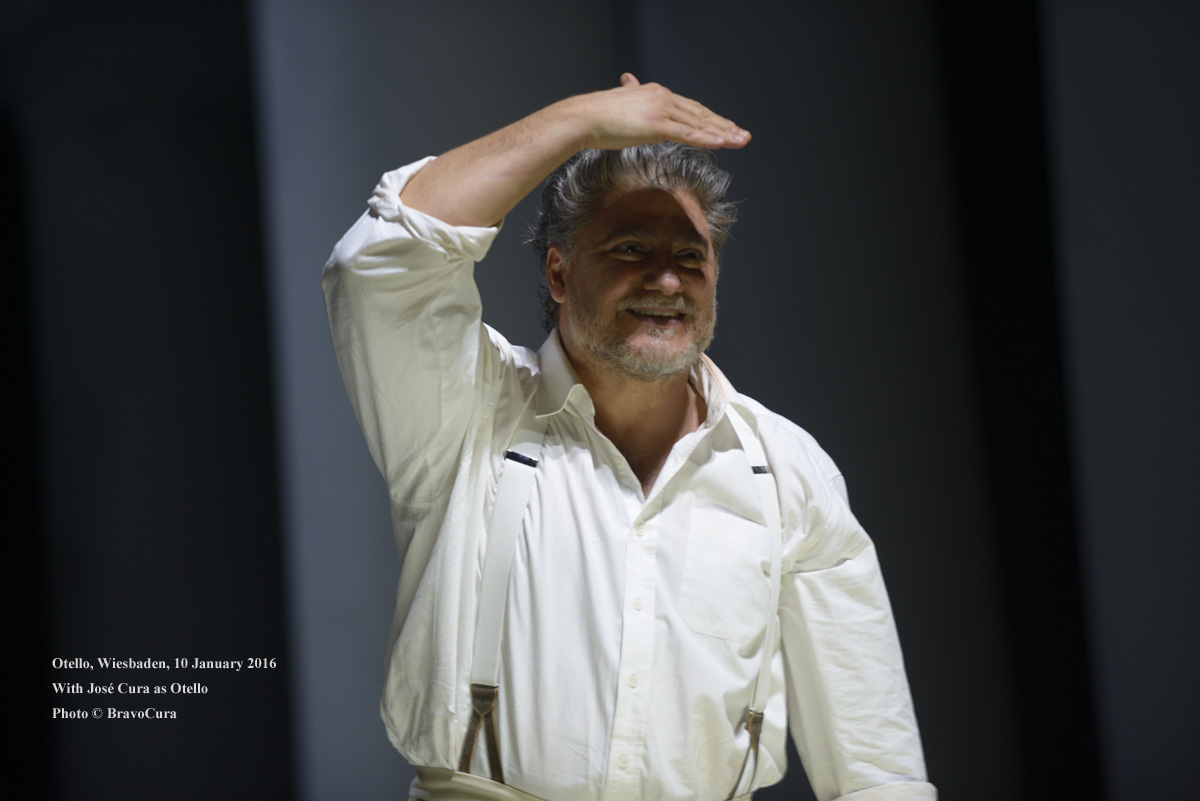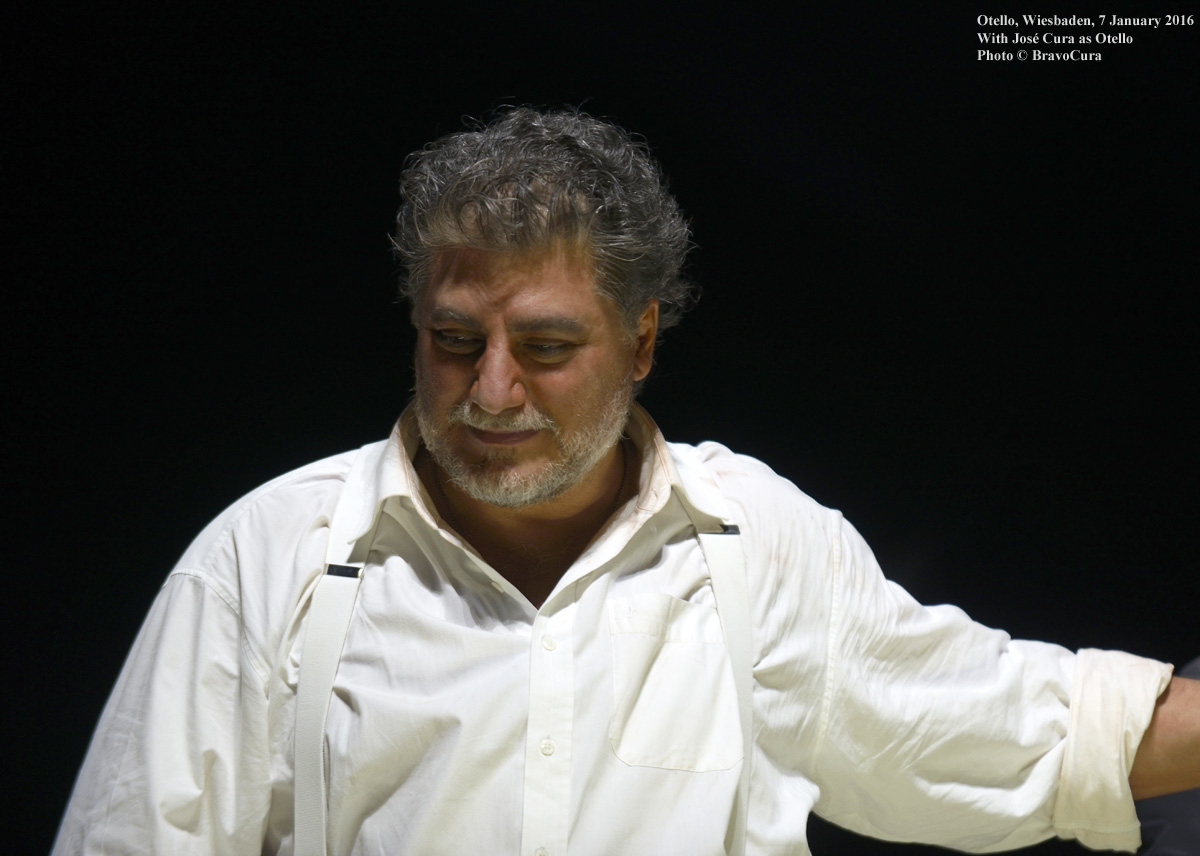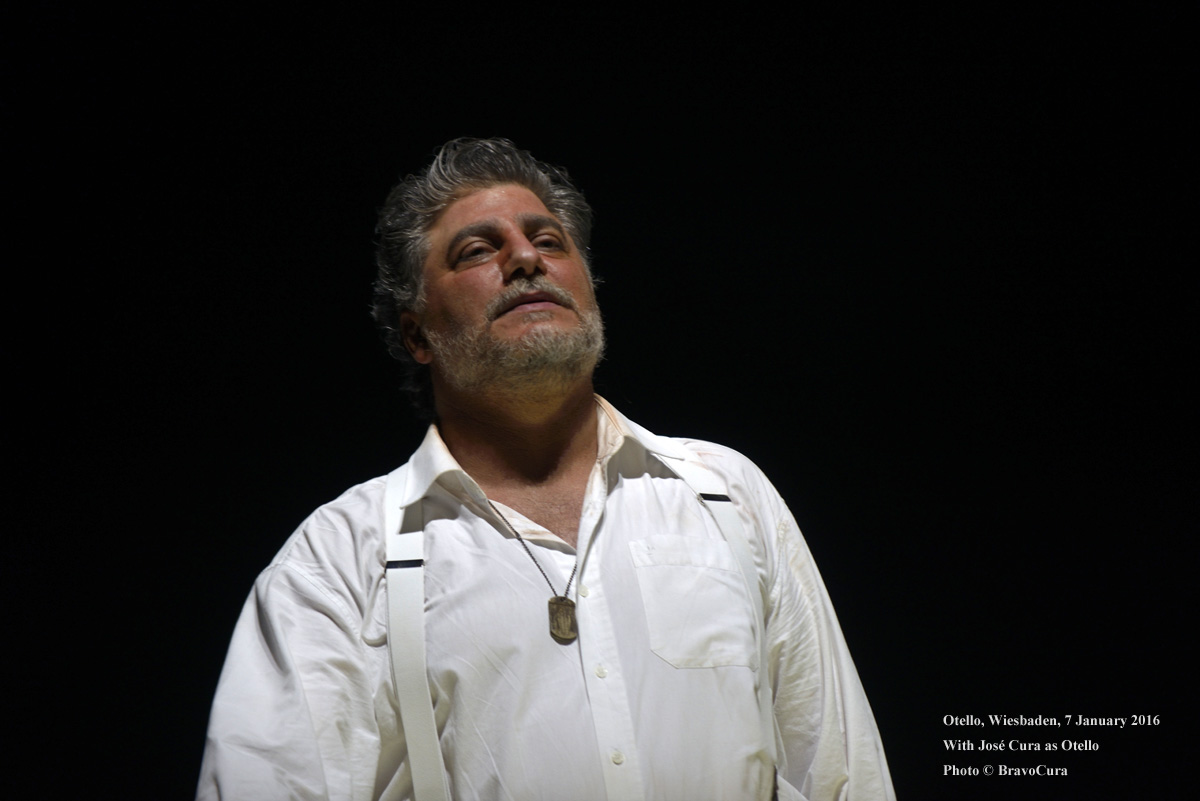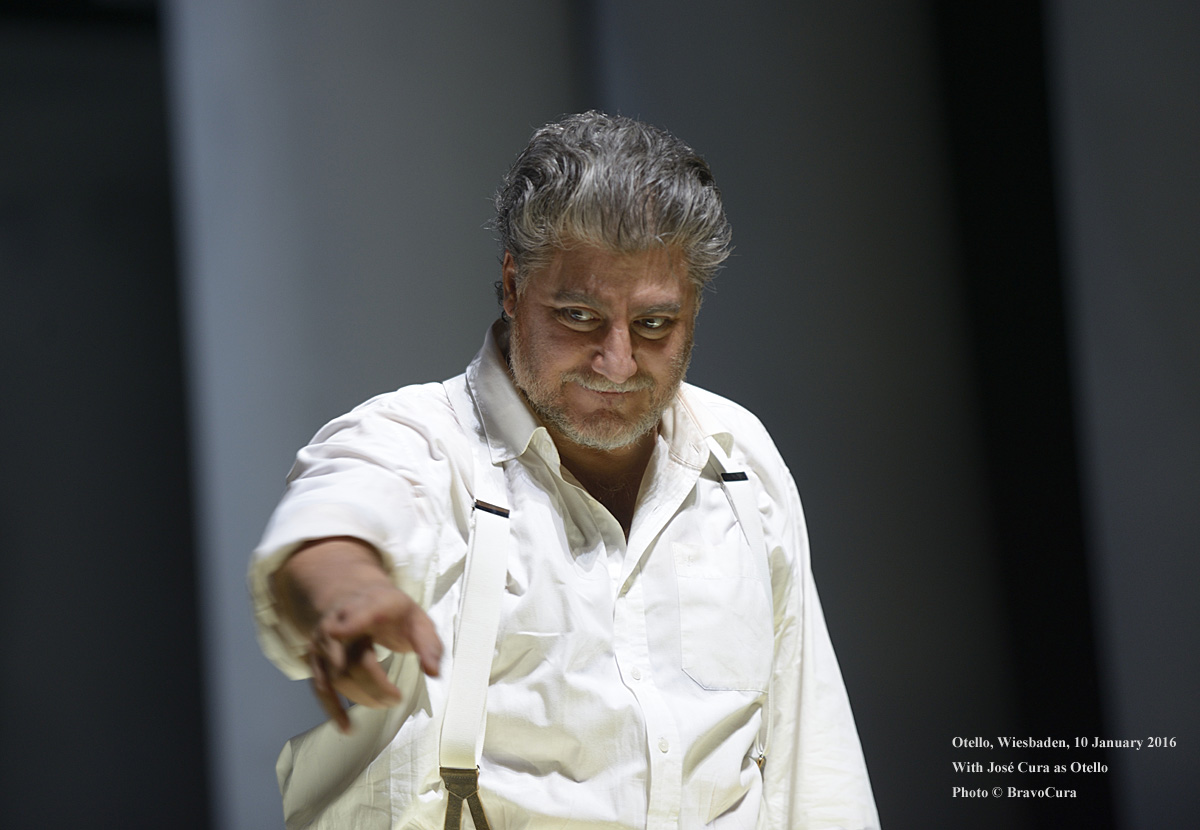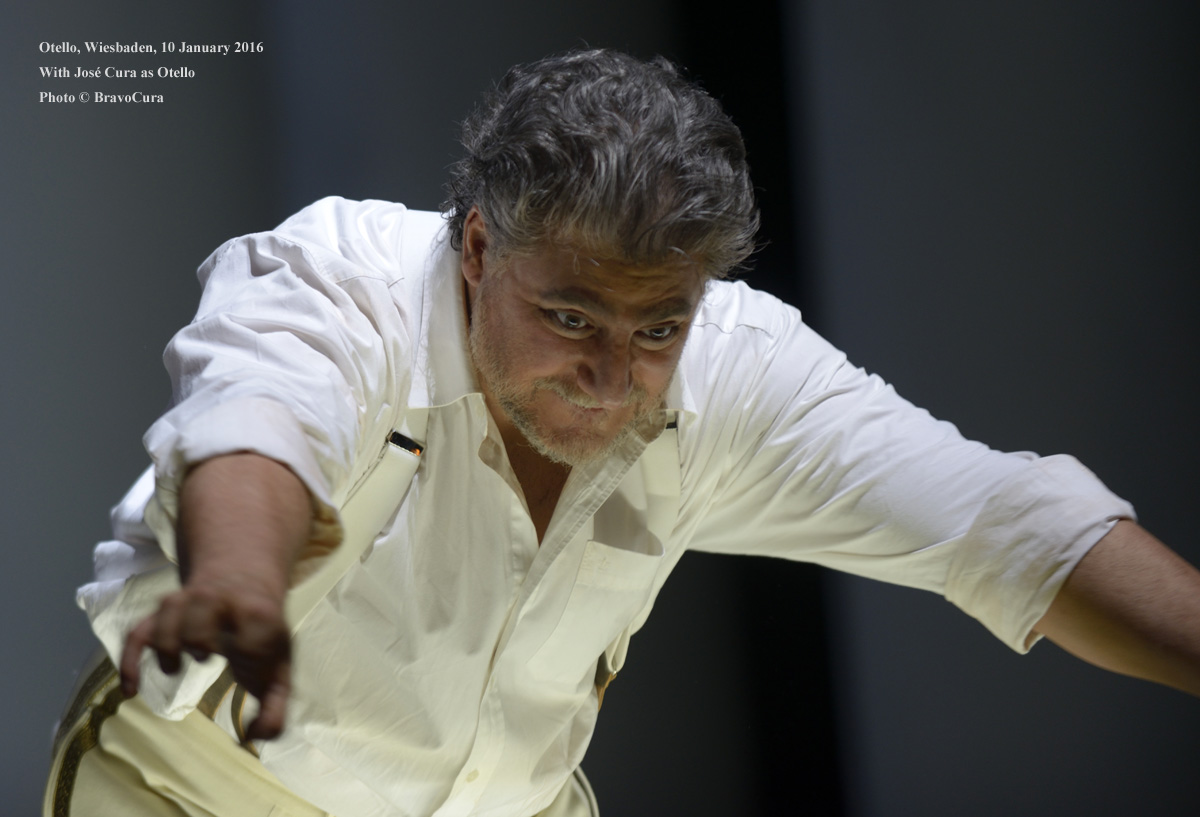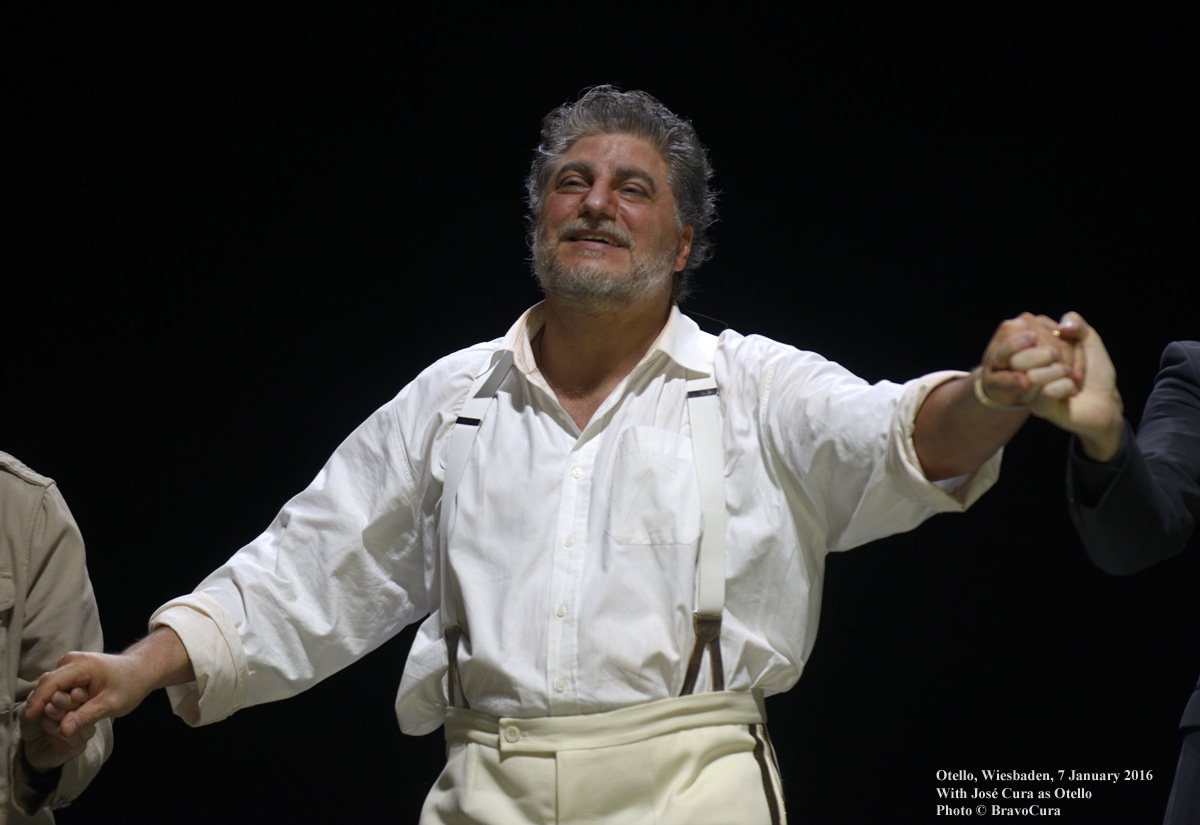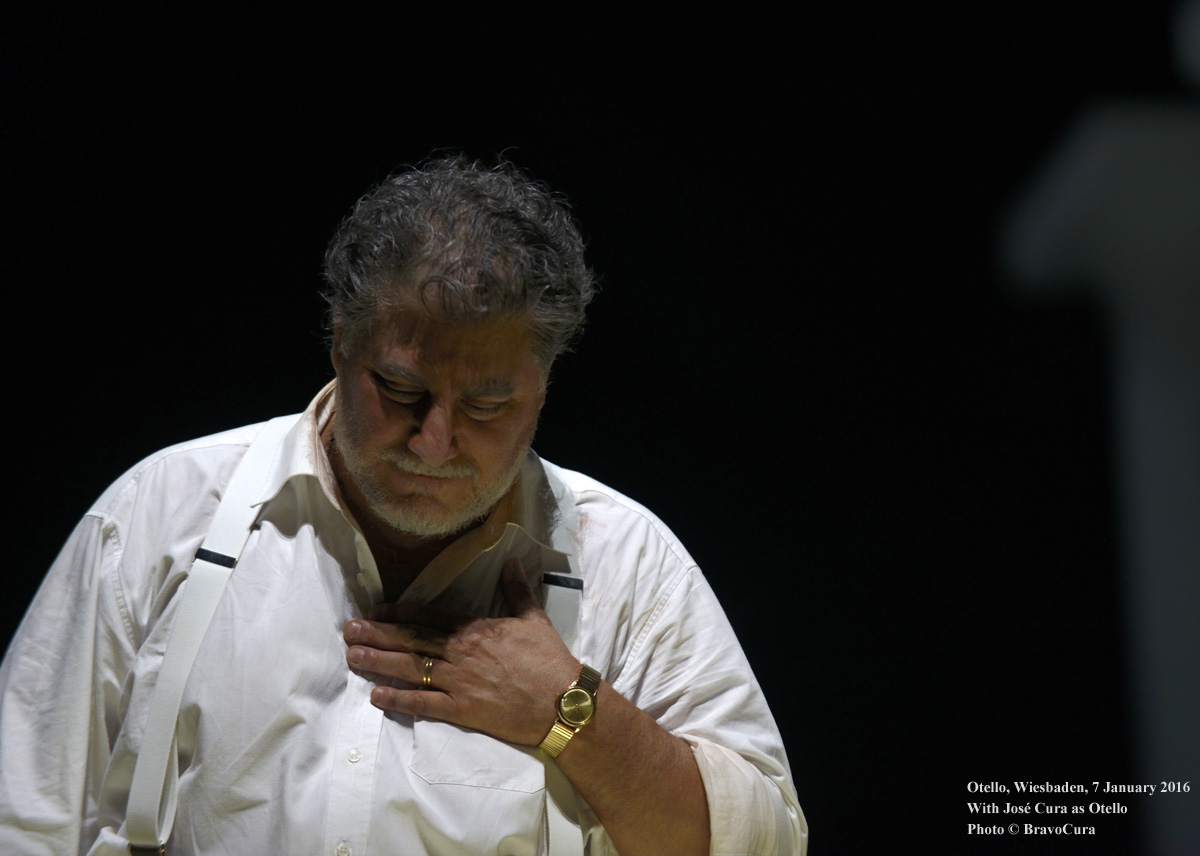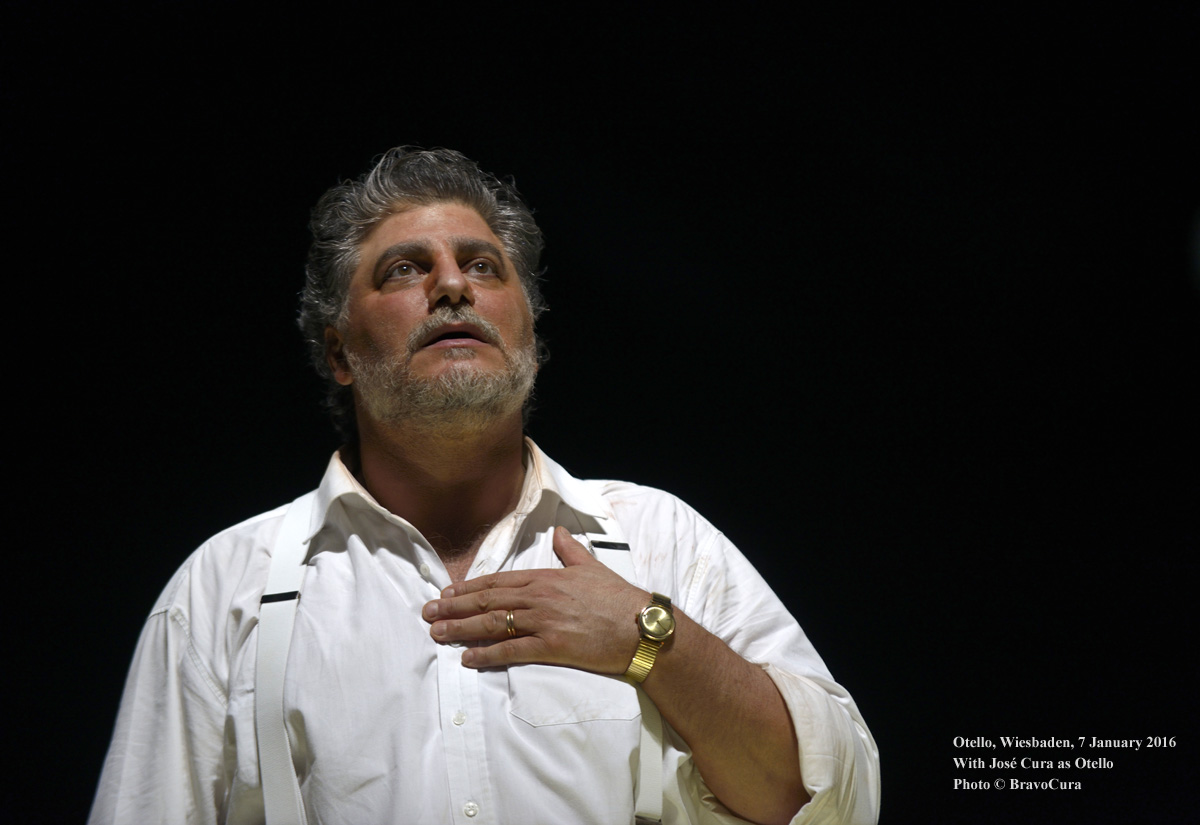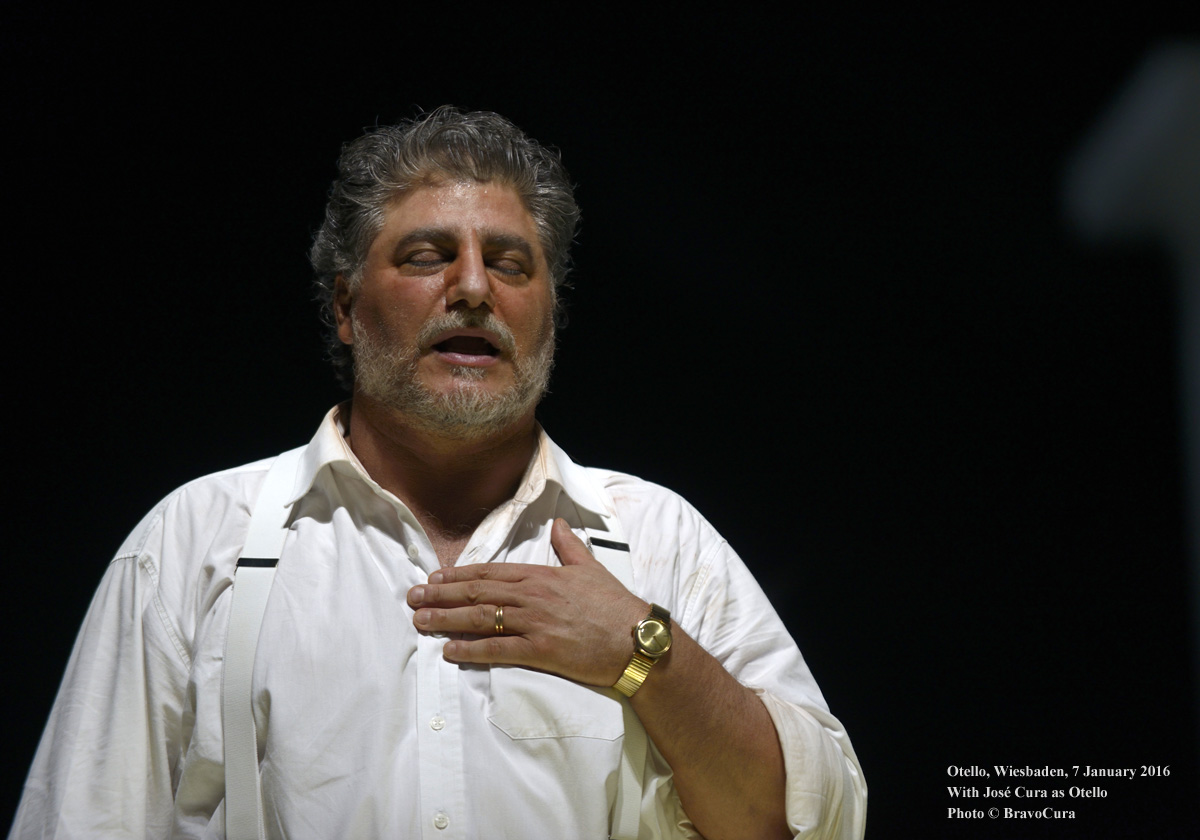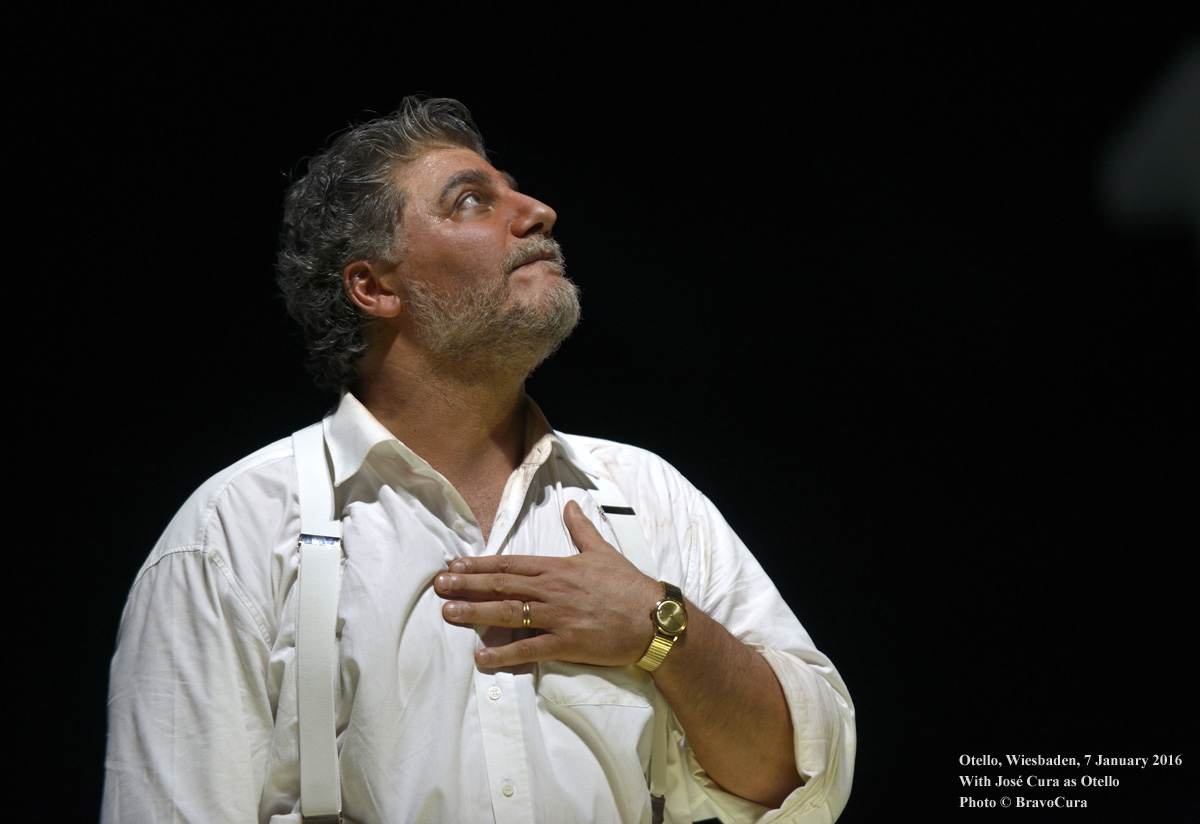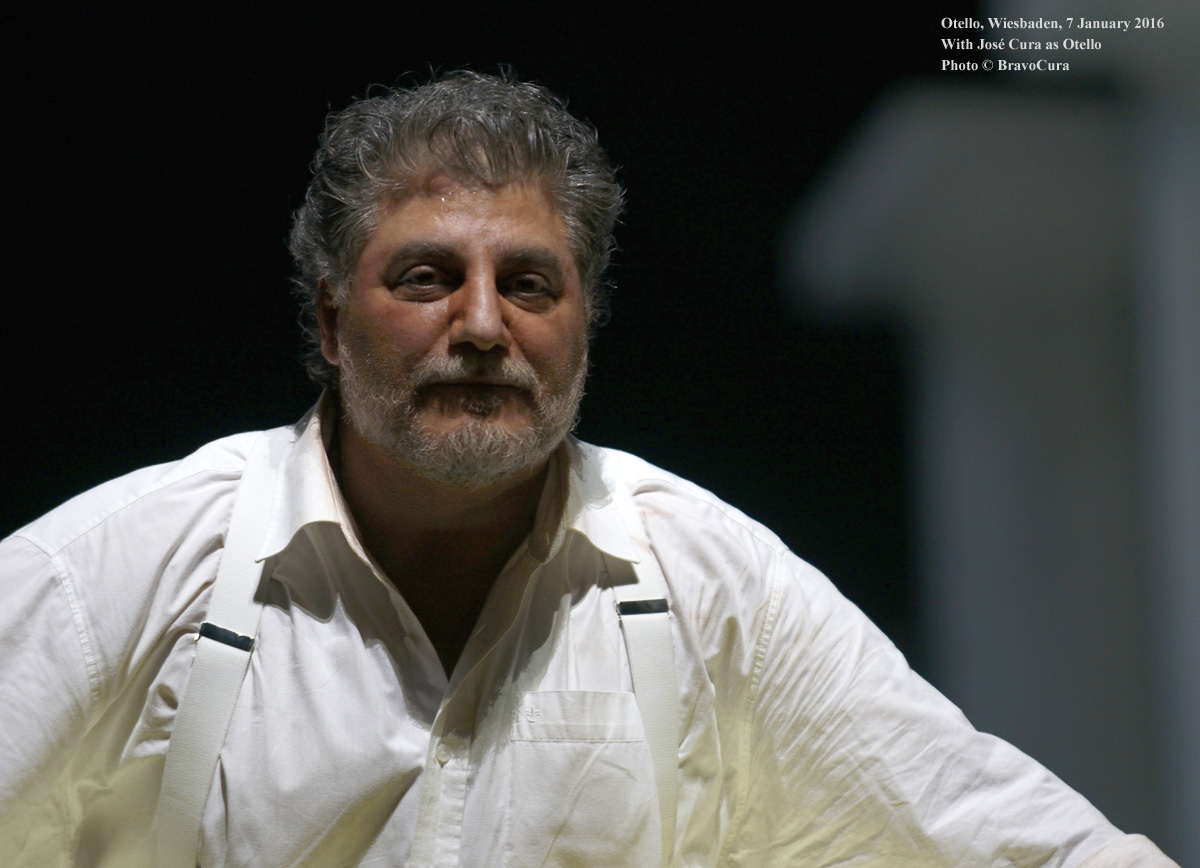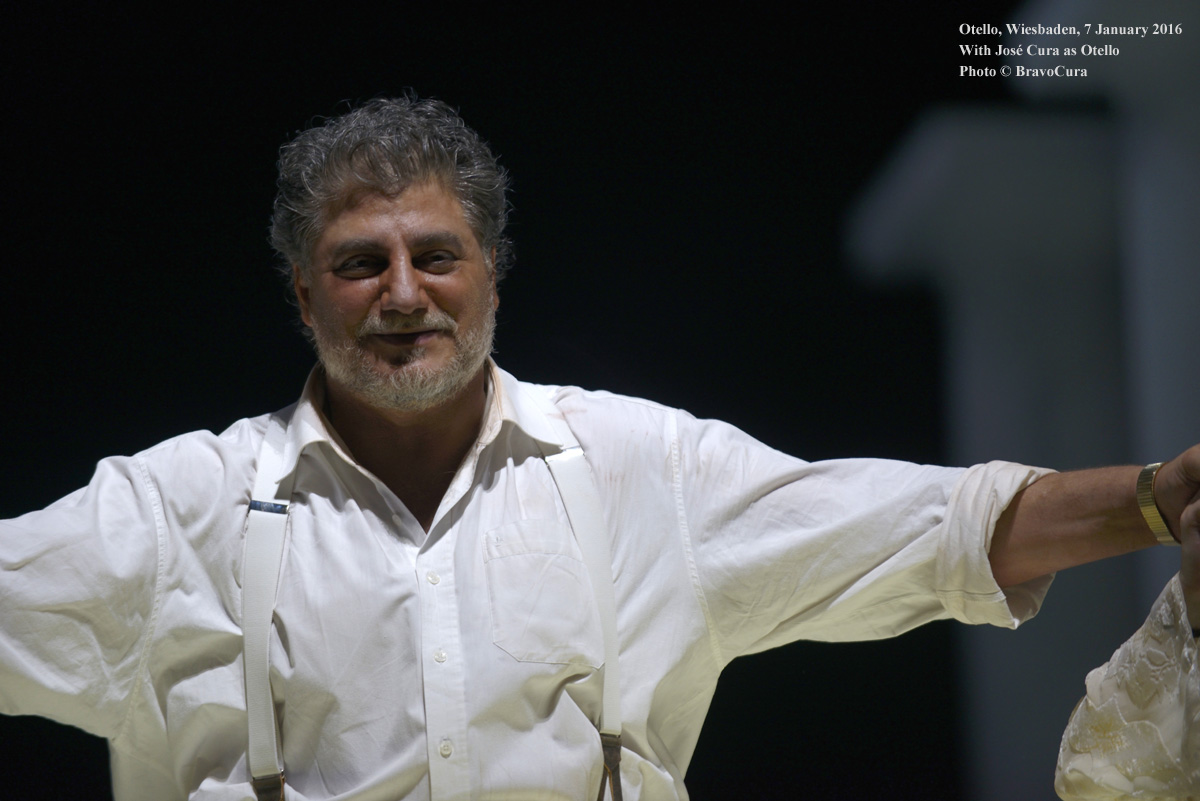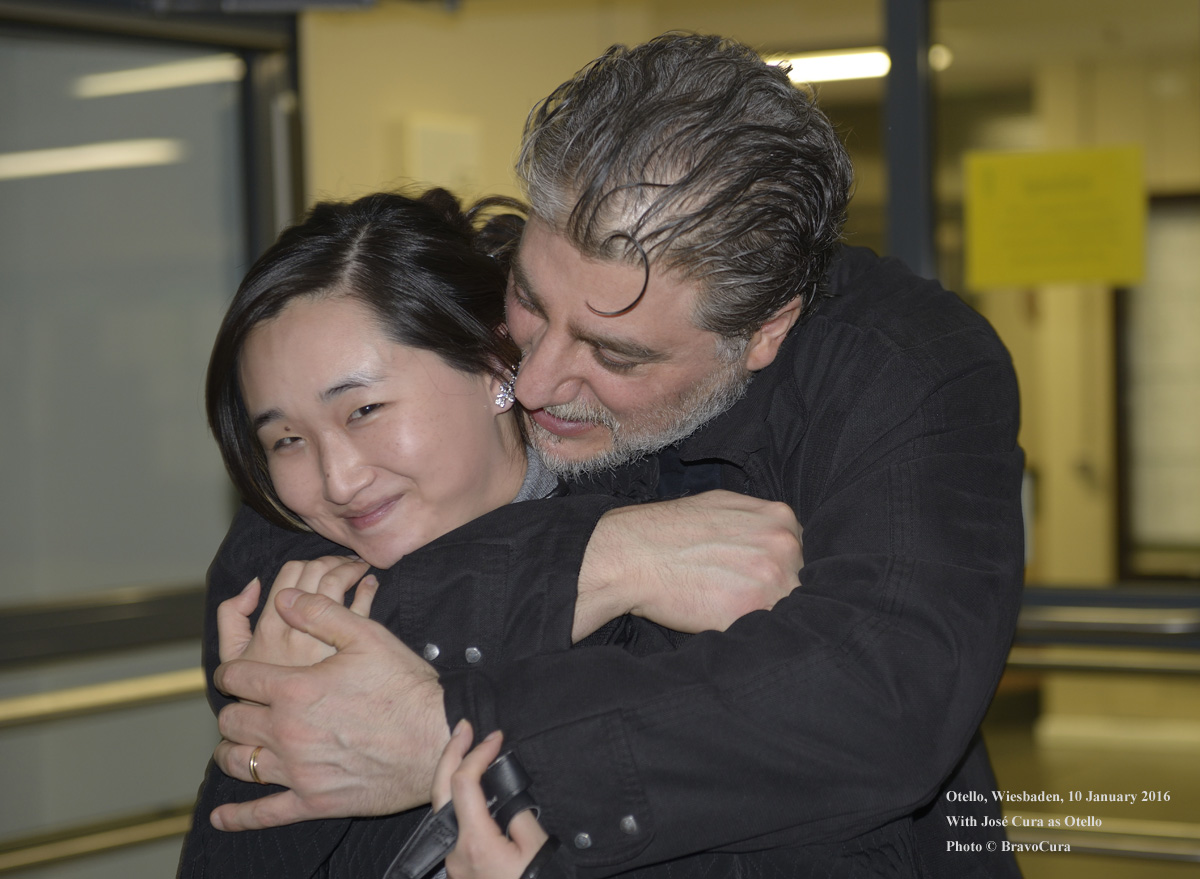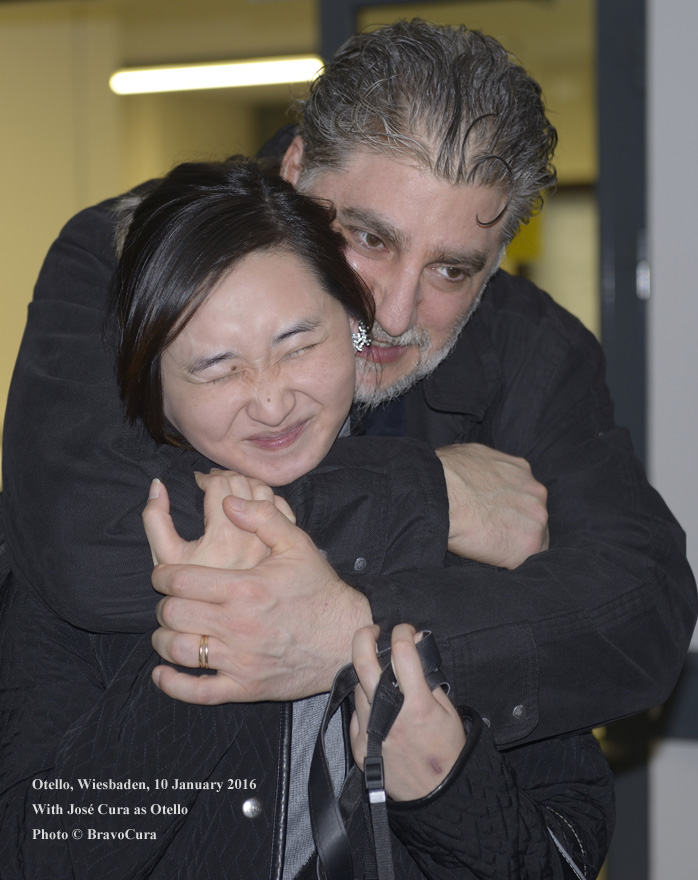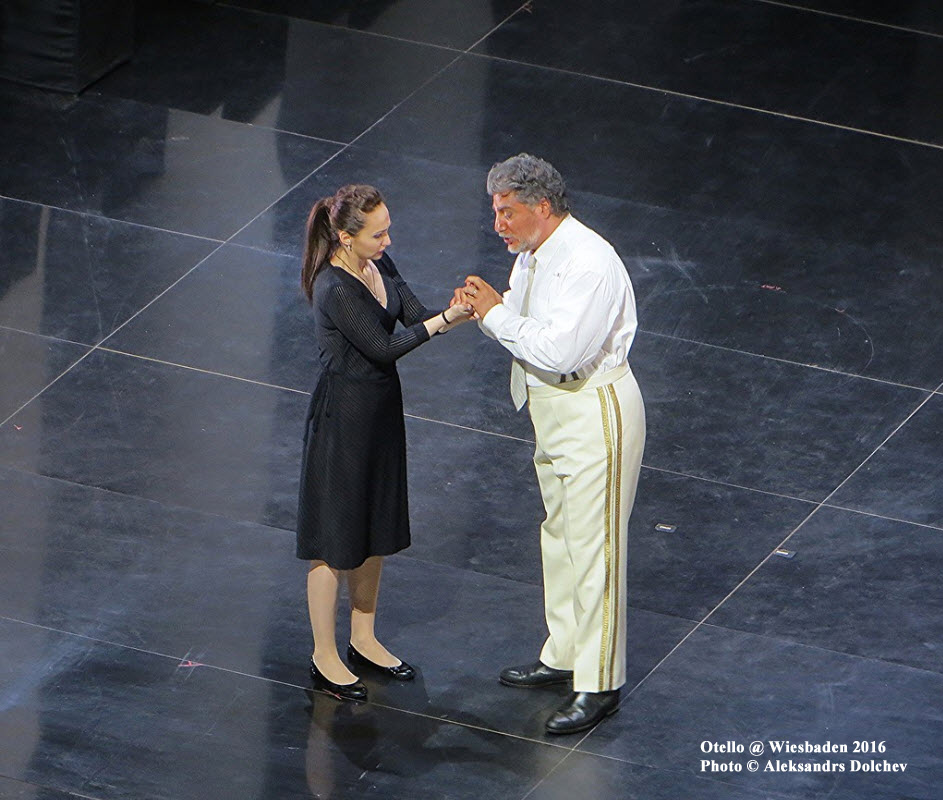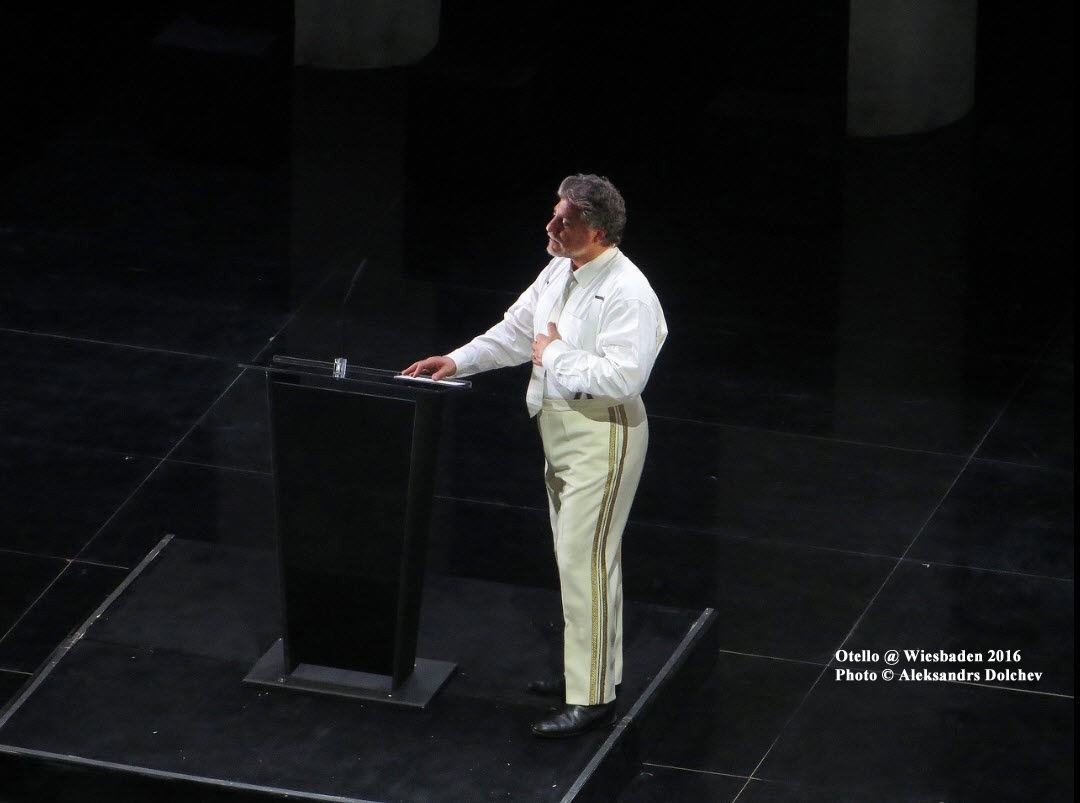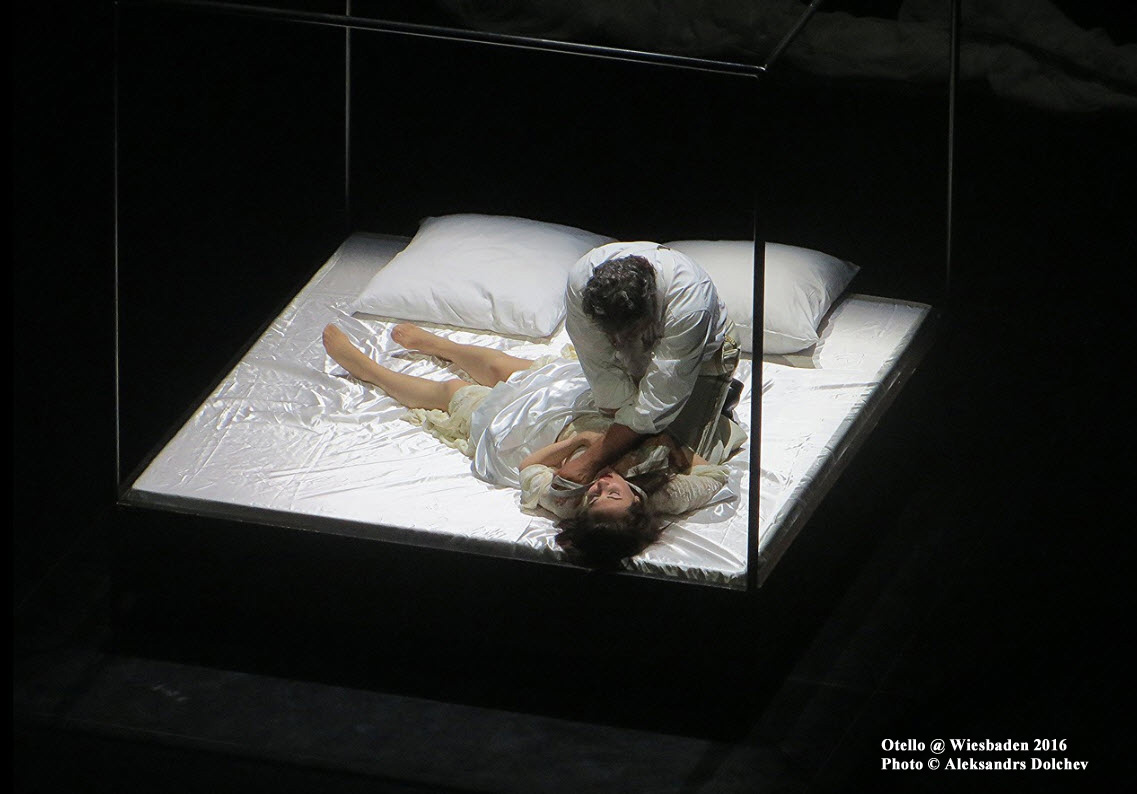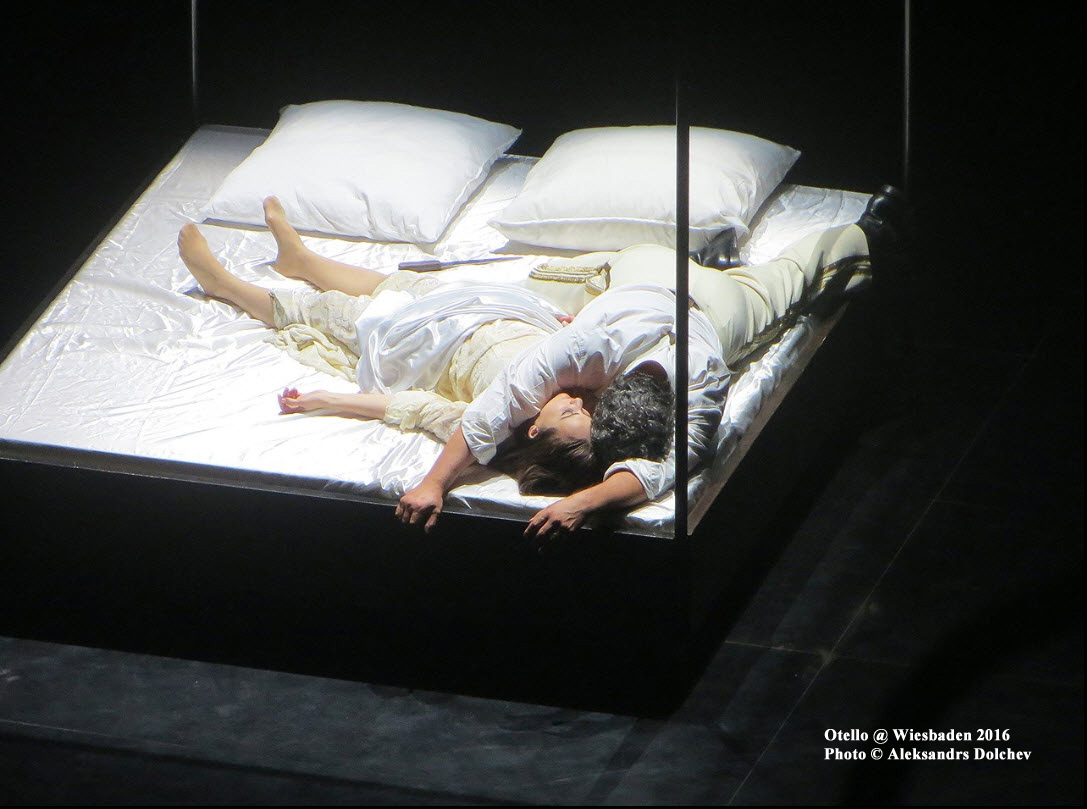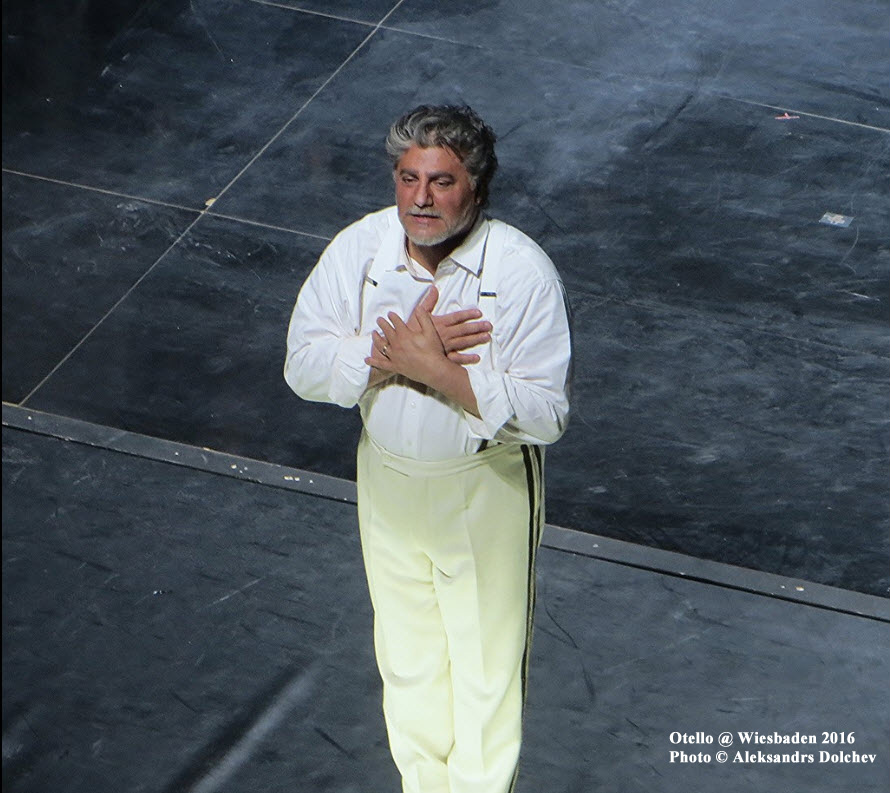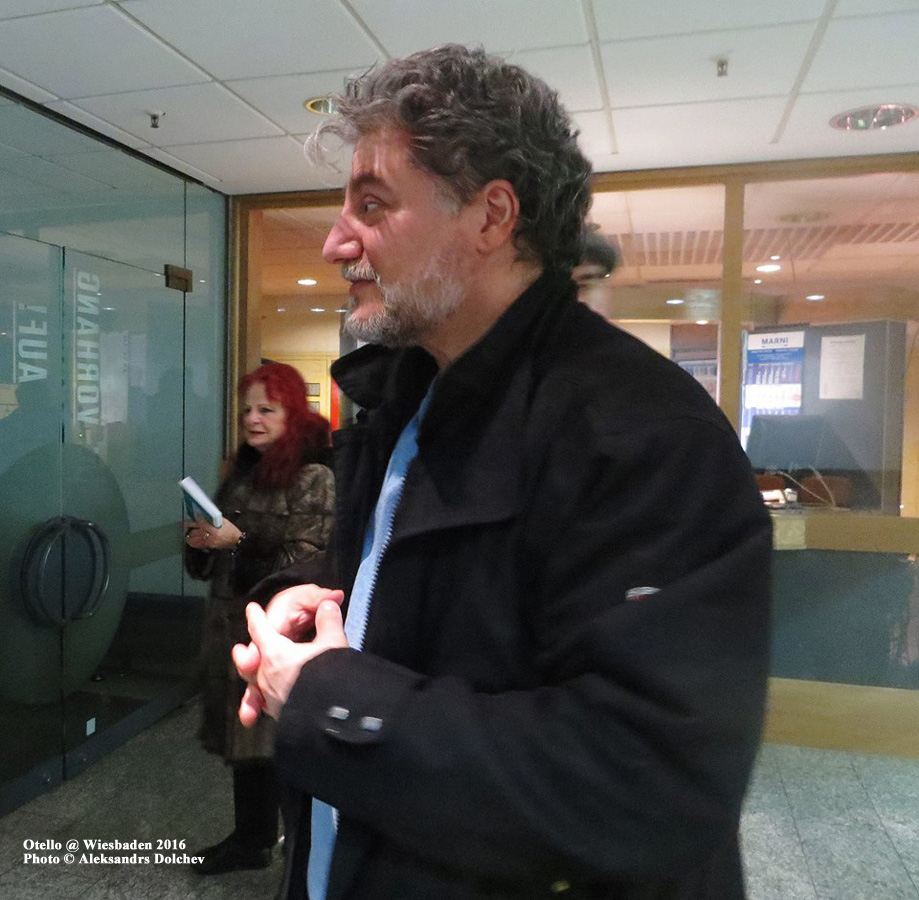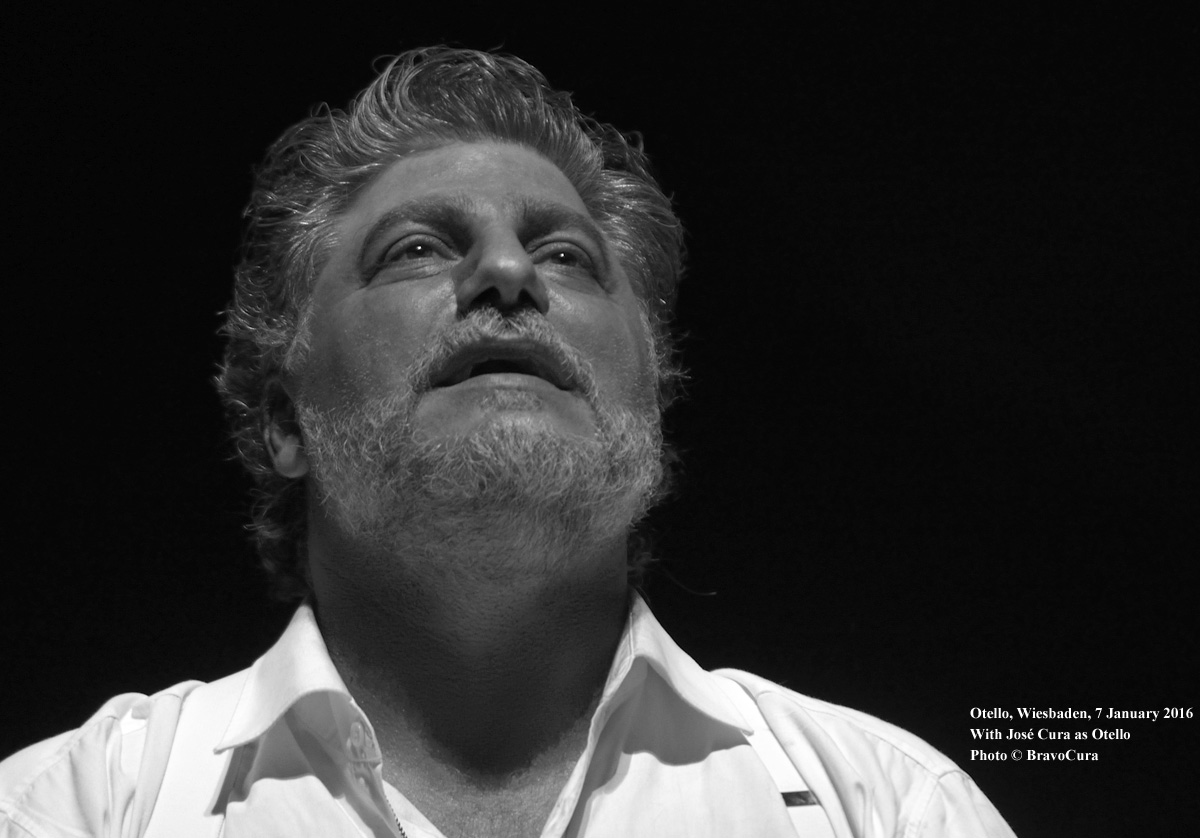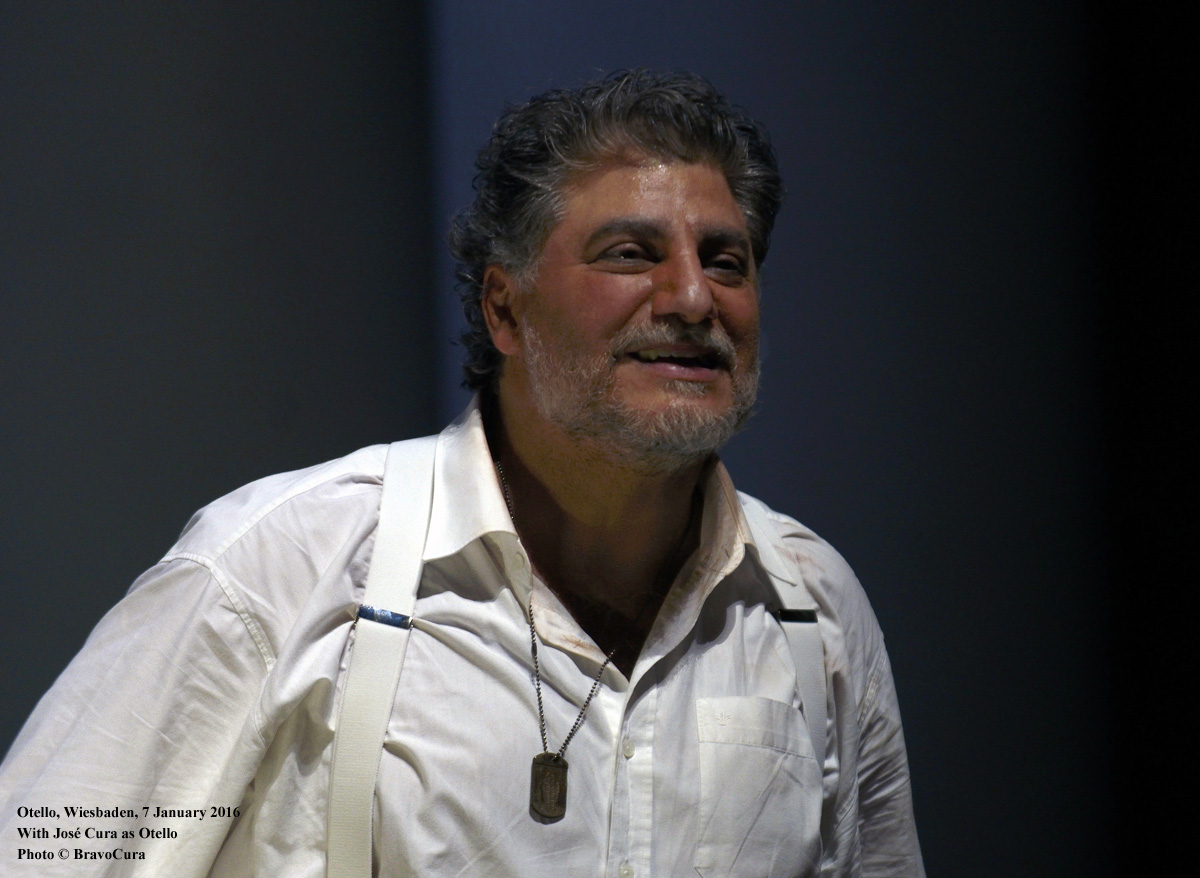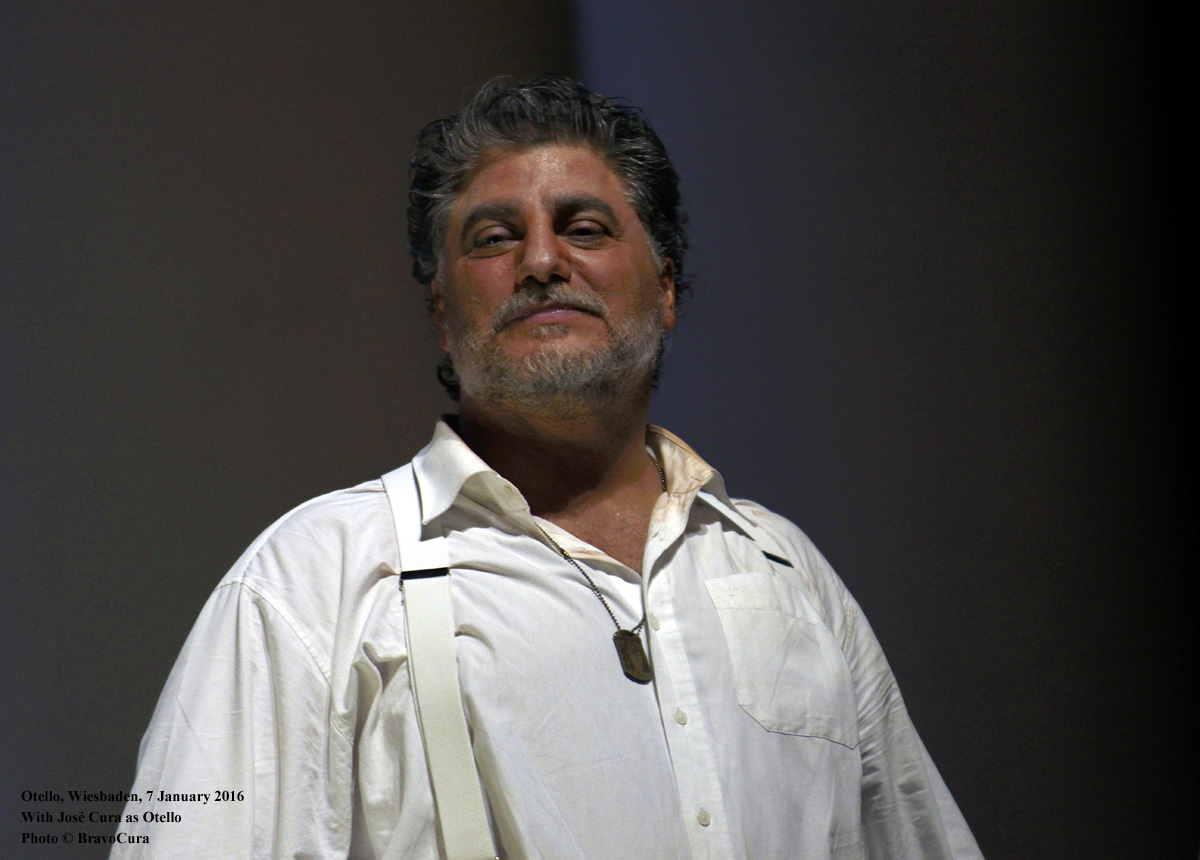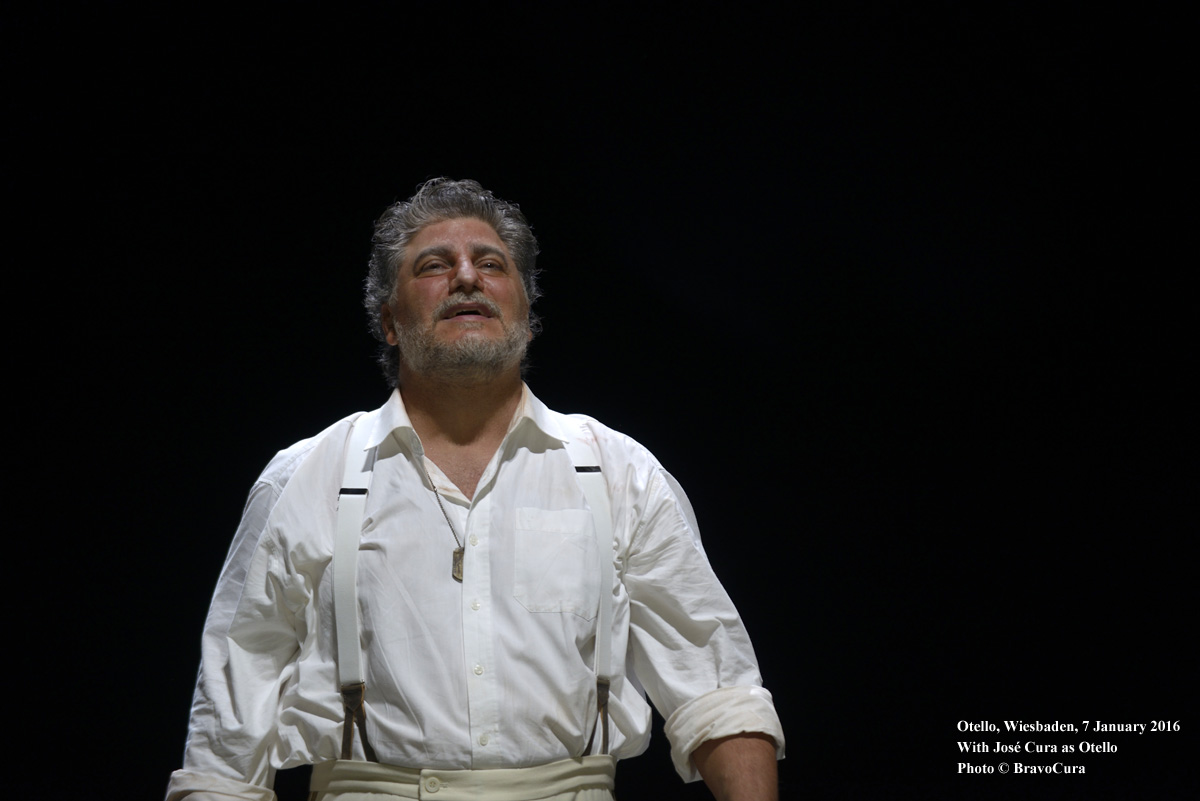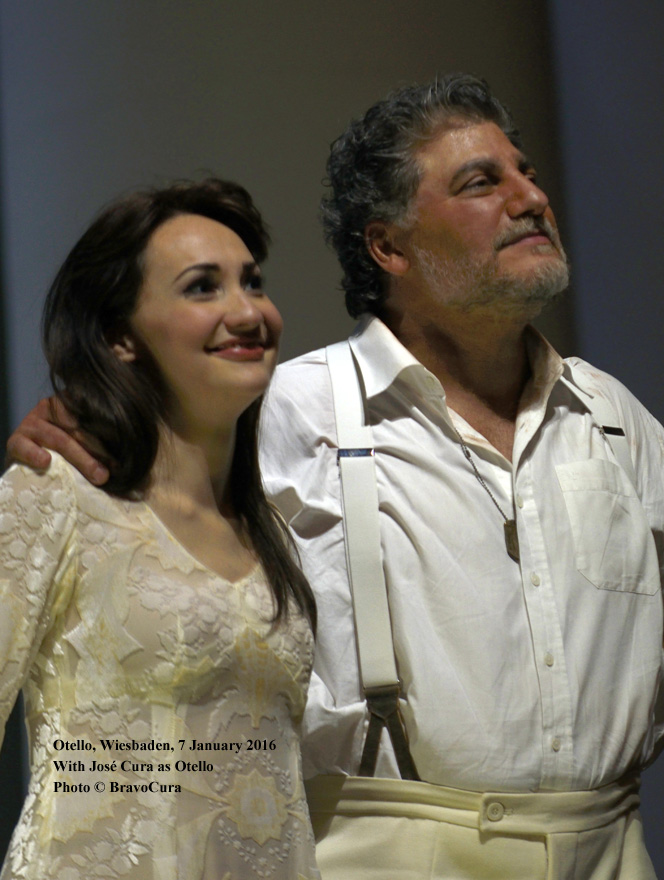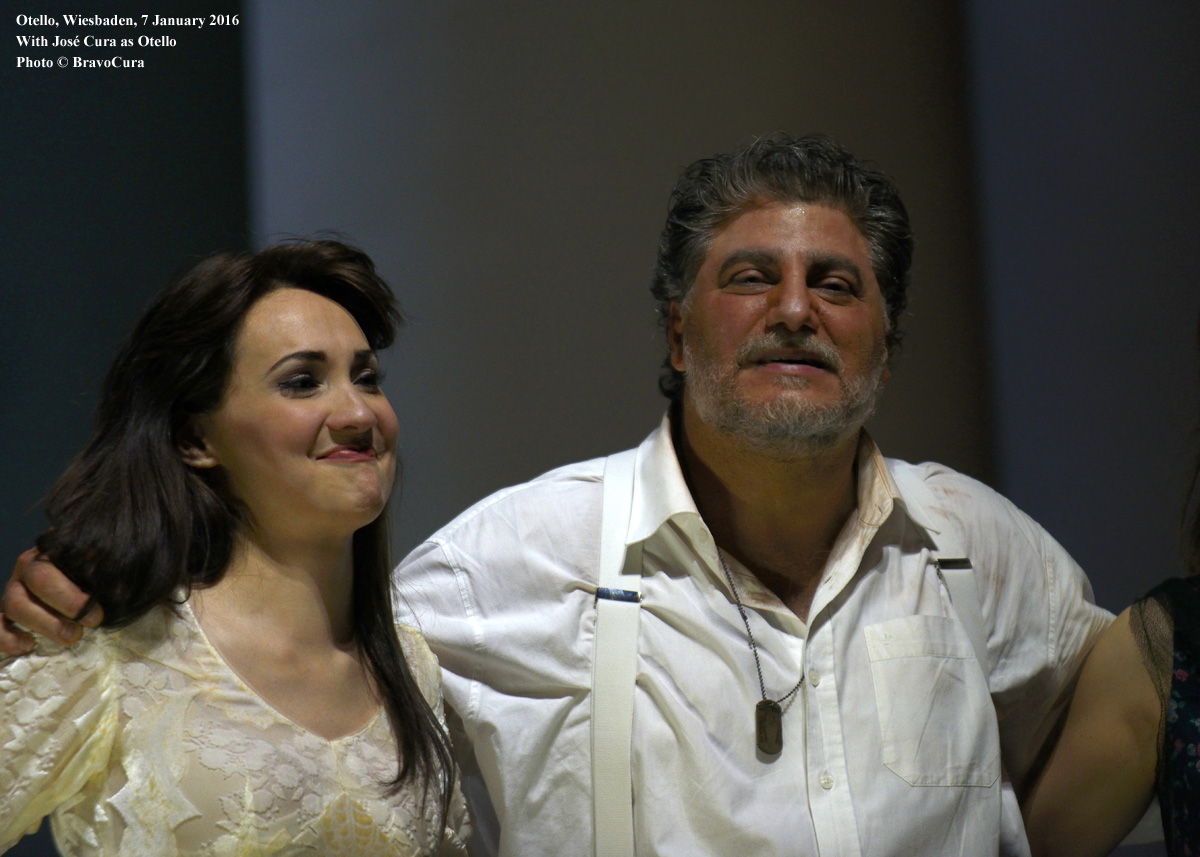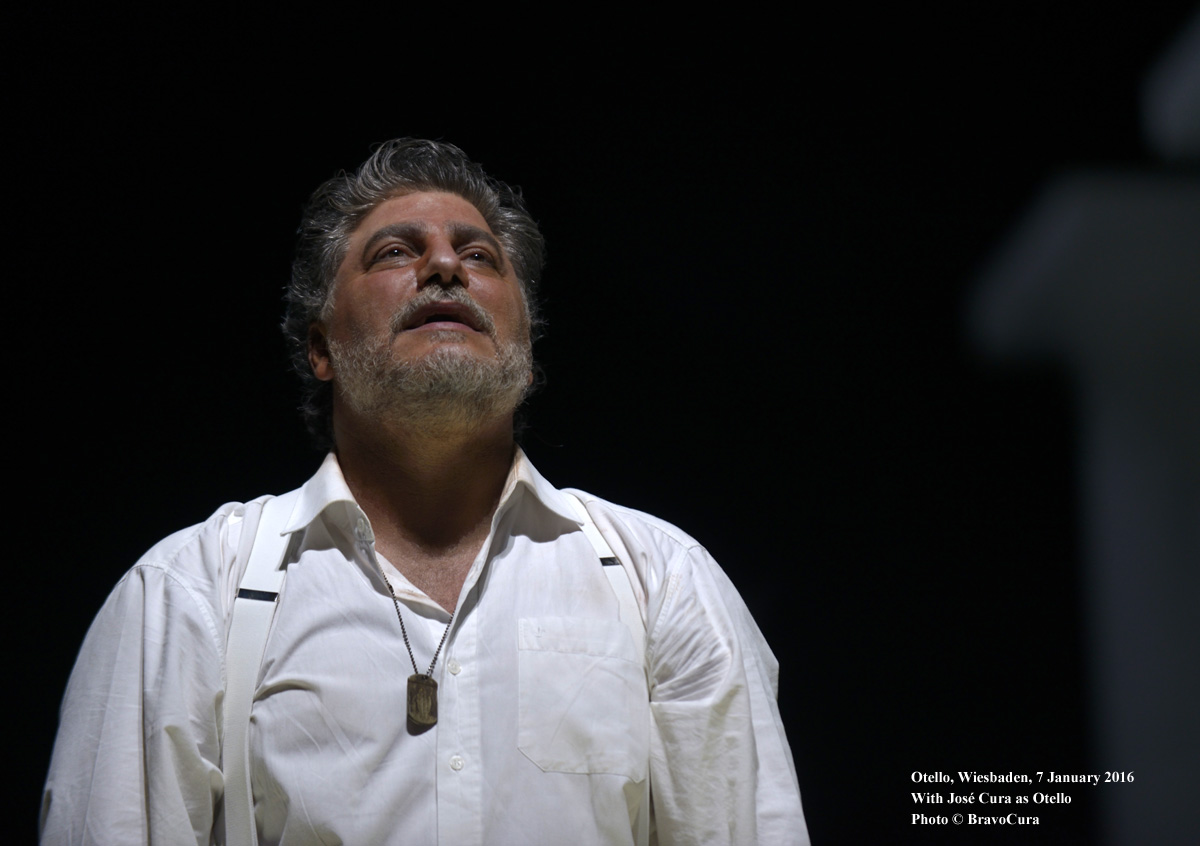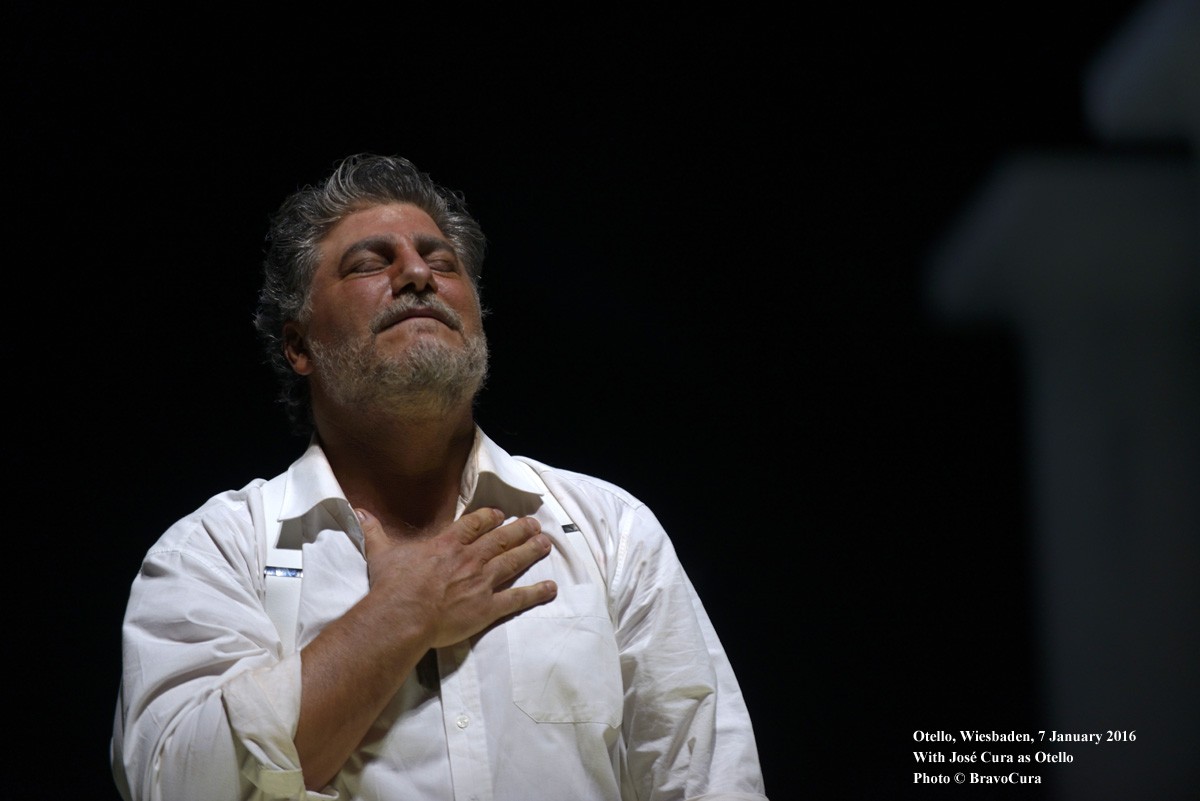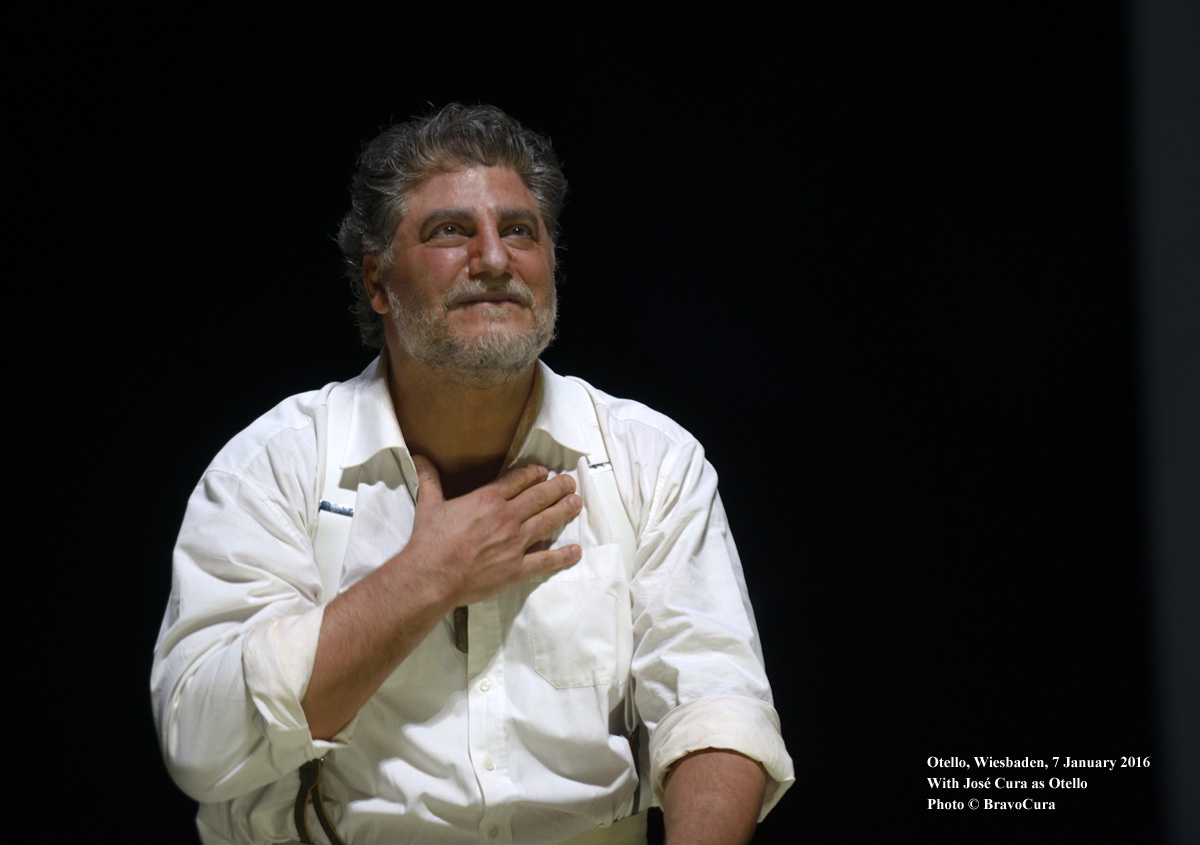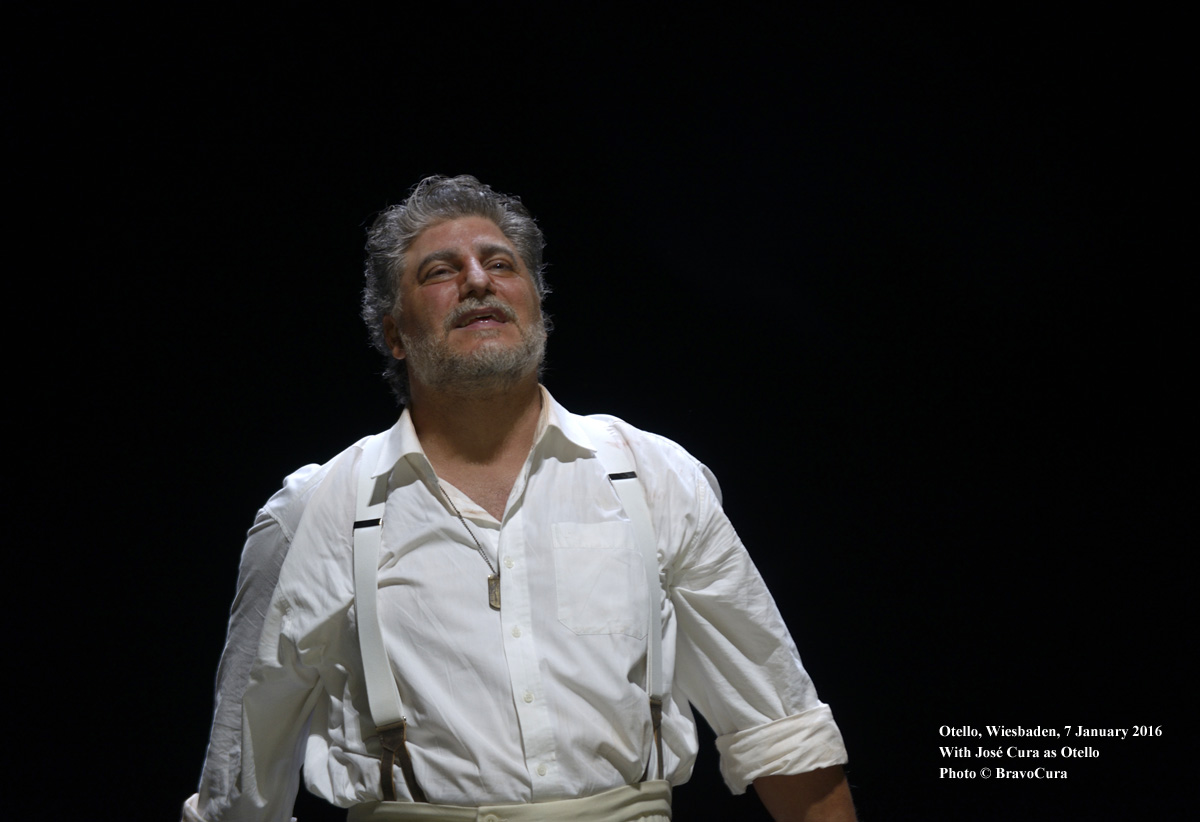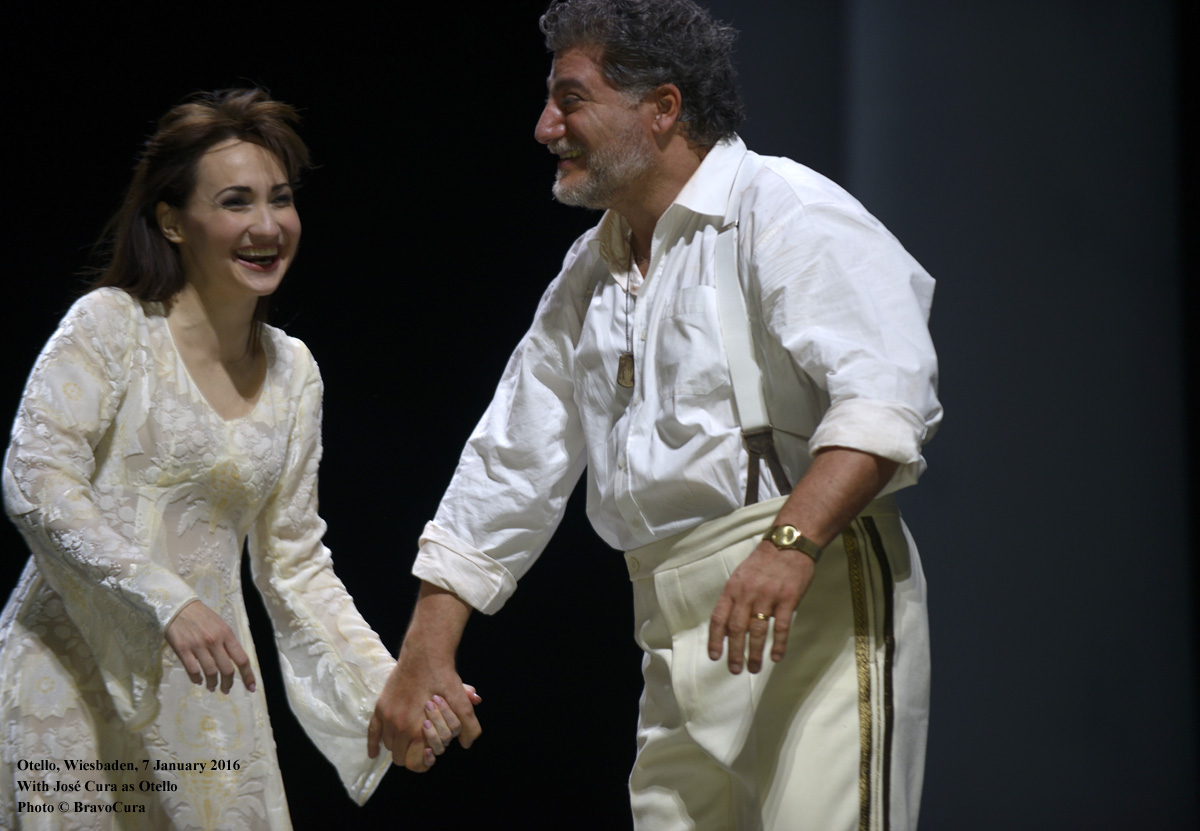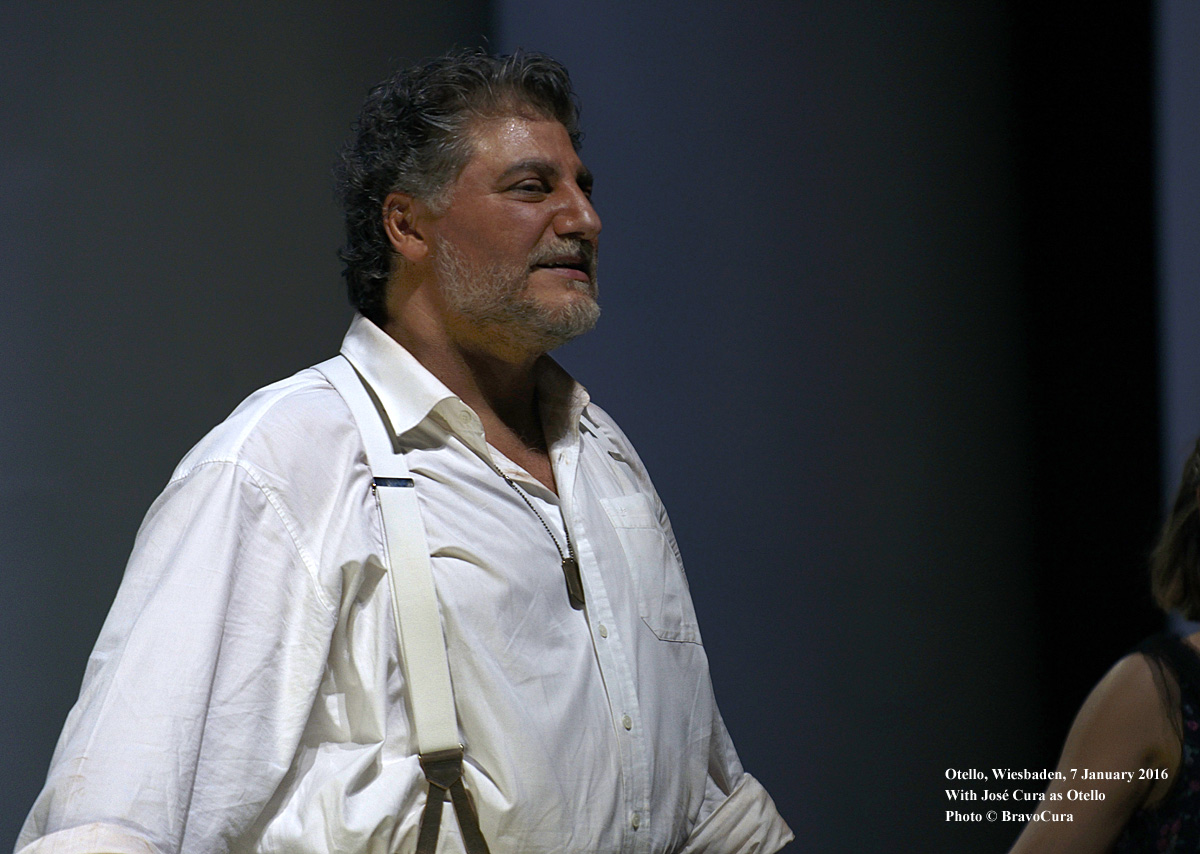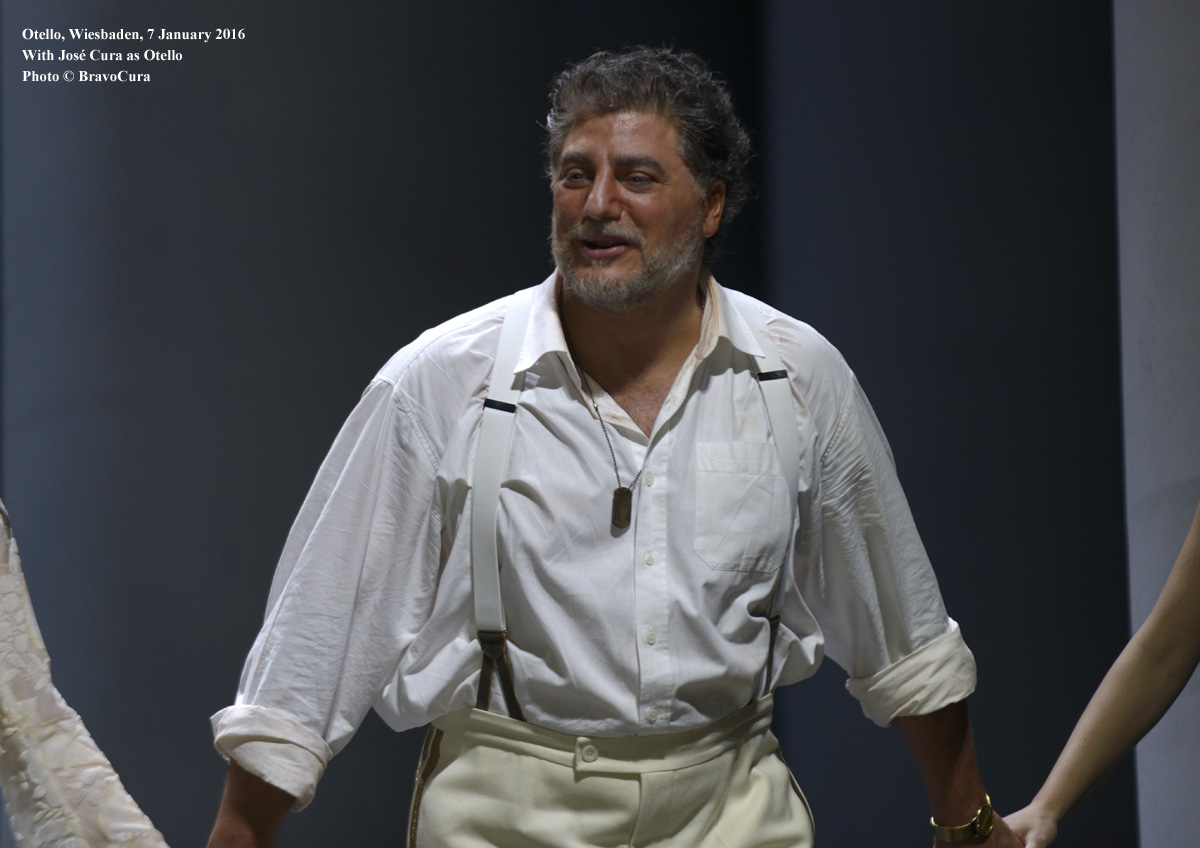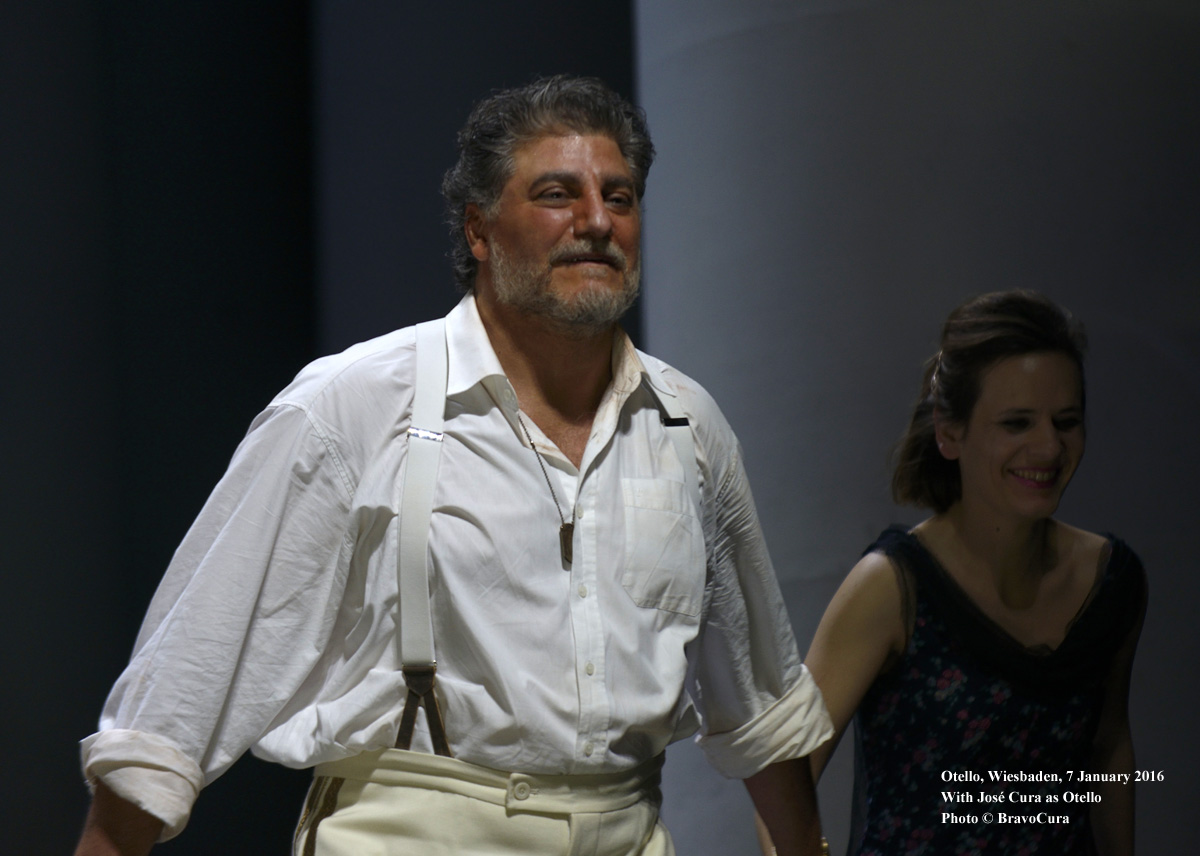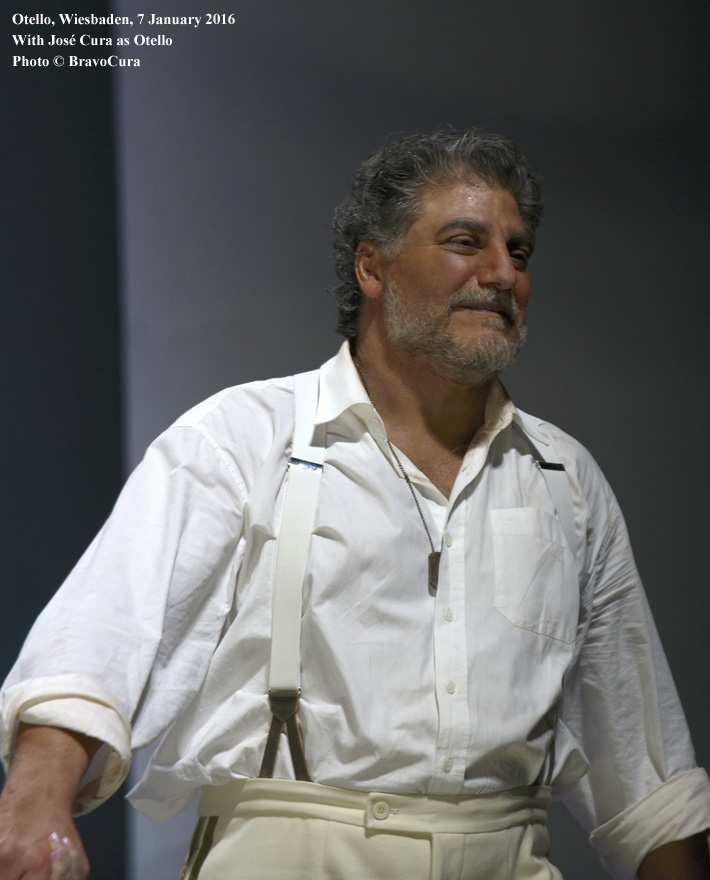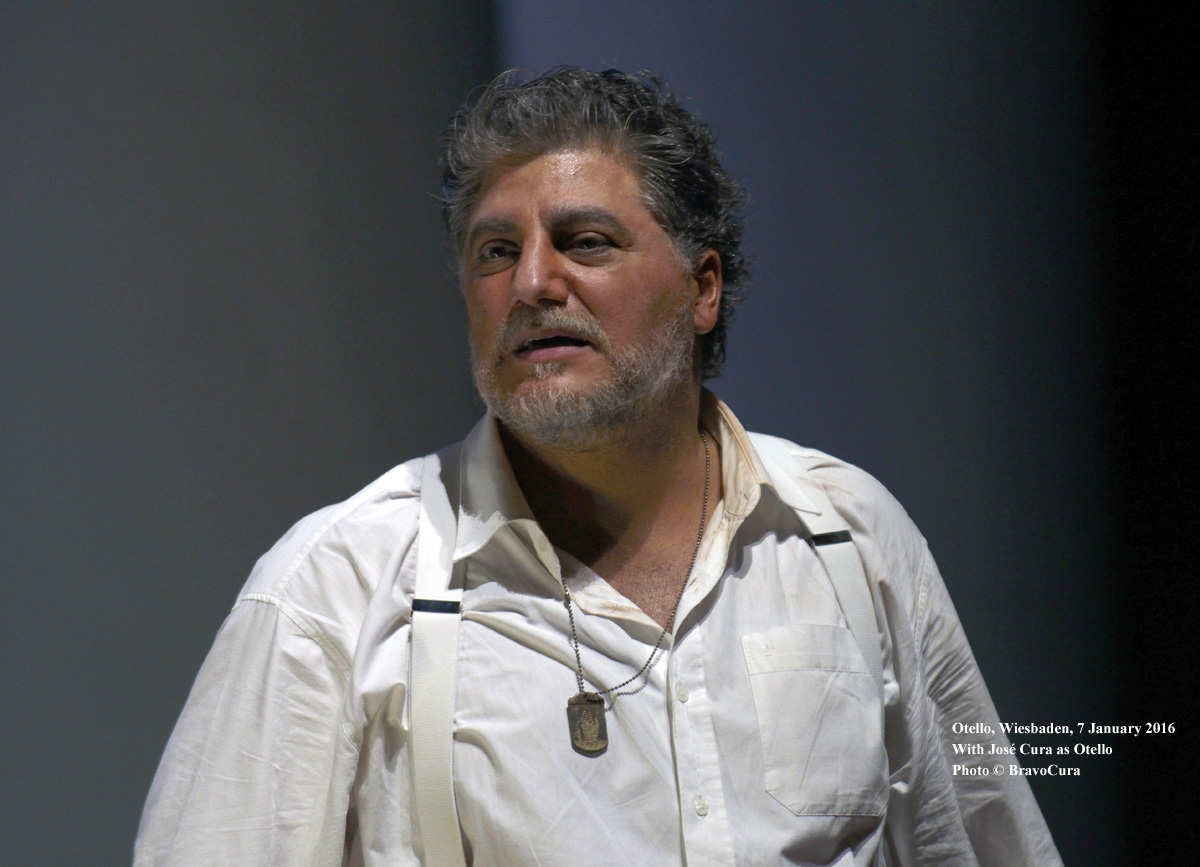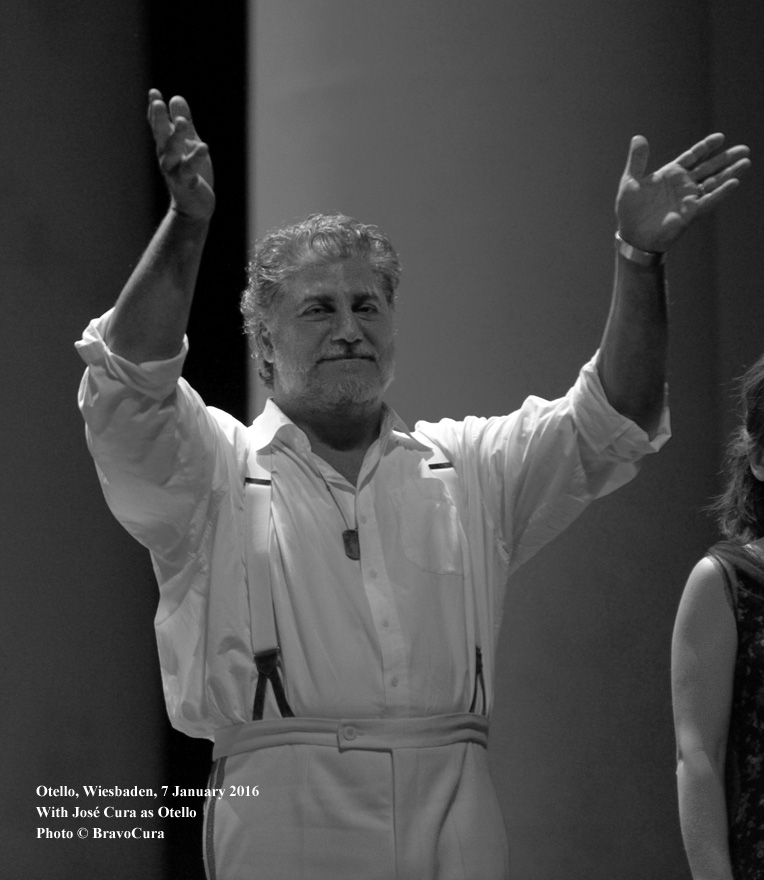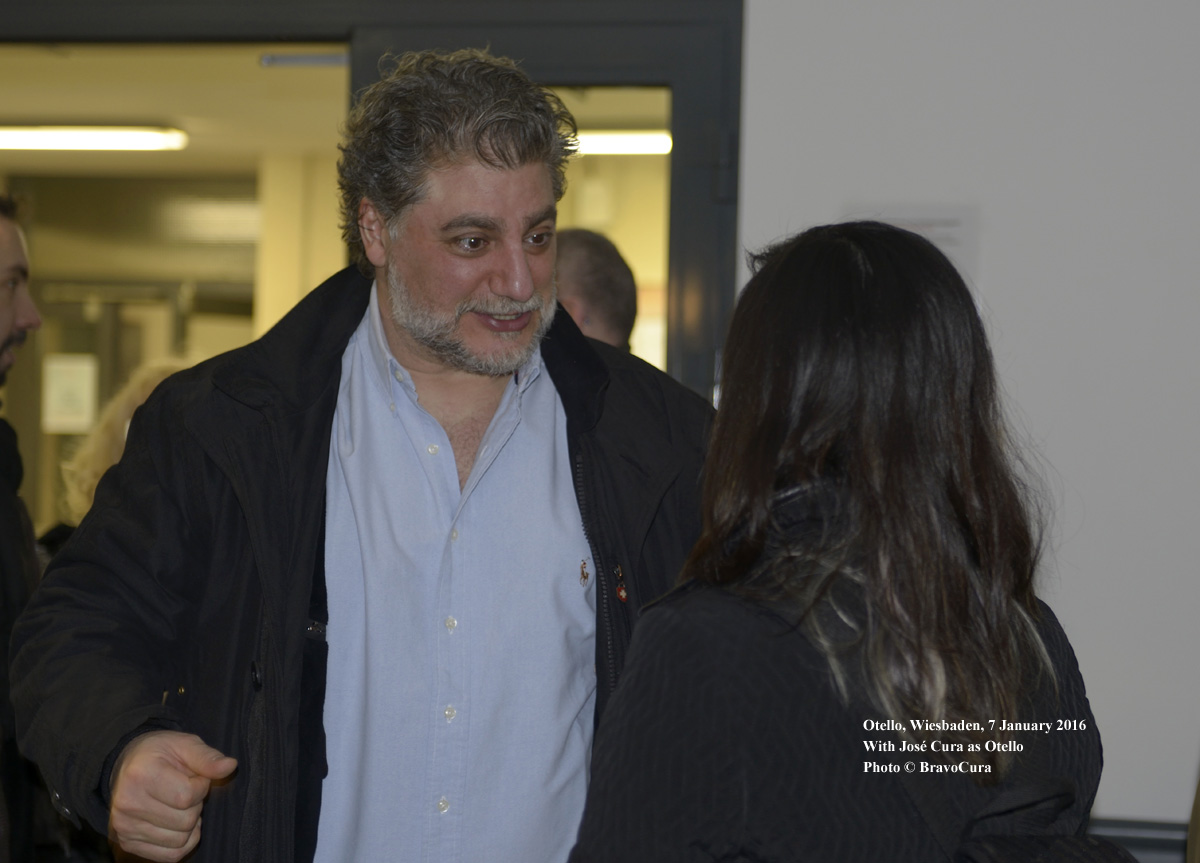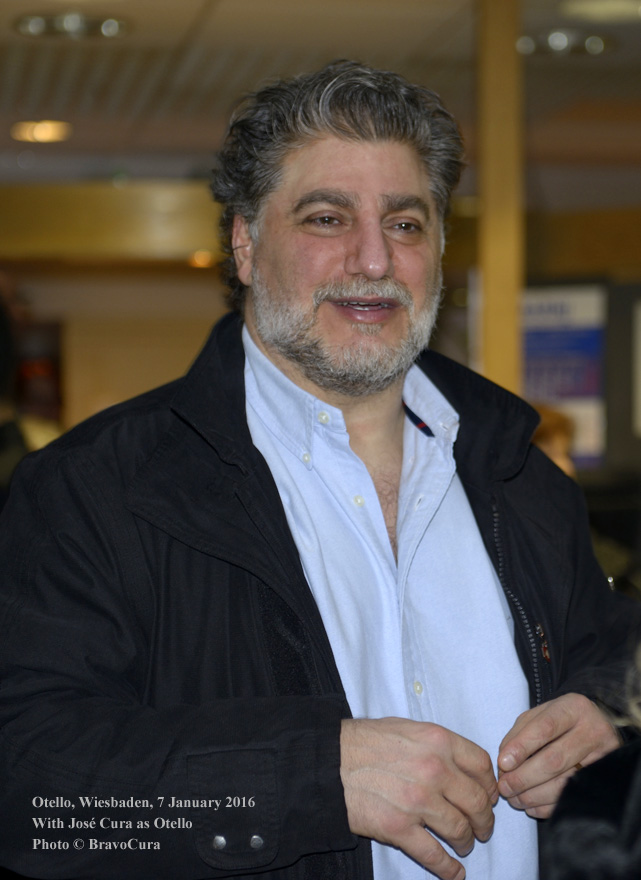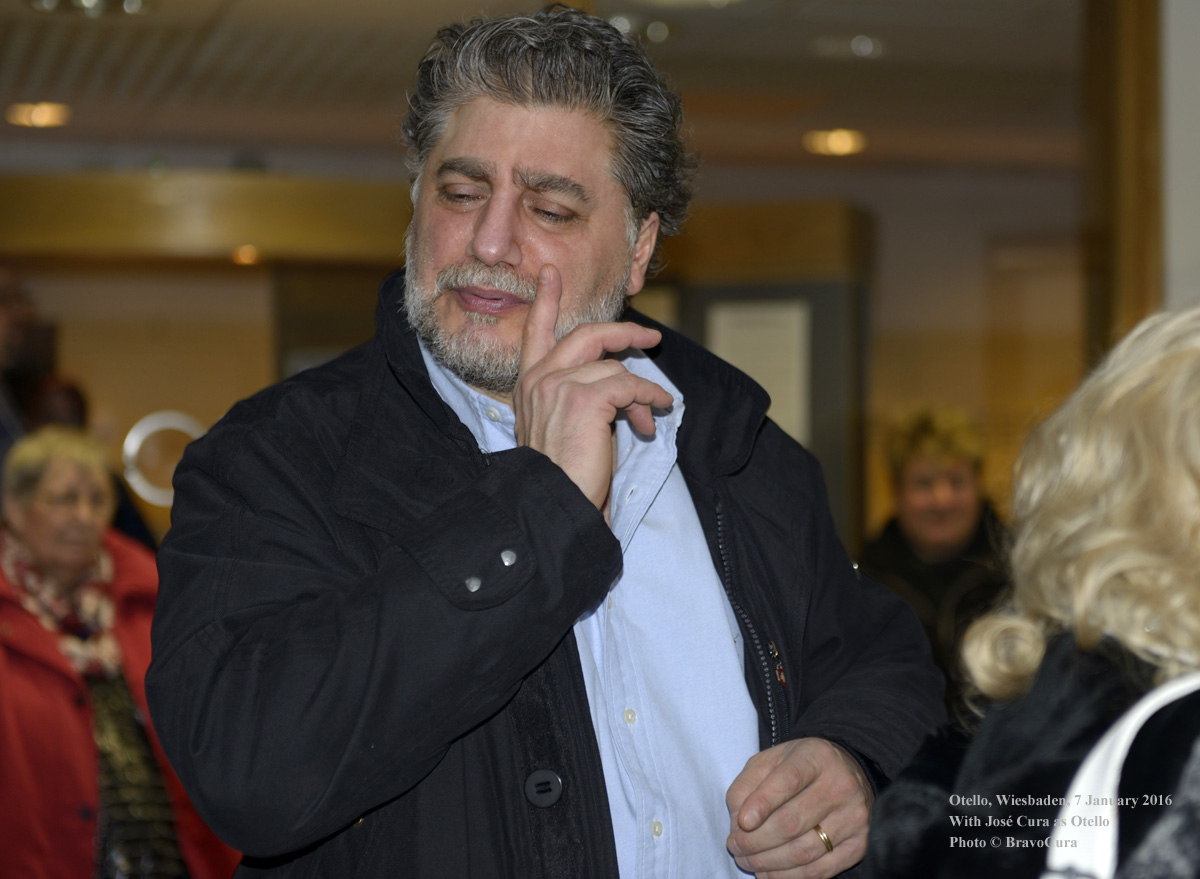Rarely can one experience such targeted direction and focus
on character as in Uwe Erik Laufenberg’s Wiesbaden staging
of Verdi’s Otello. Without a big fuss, but
always logically, stringent in the personal direction, maybe
a bit flat in the choral scenes, but always impressive and
with momentum without gimmickry right up to the thrilling,
sensuous final scene.
Gisbert Jäkel’s white column space and Jessica Karge’s
tasteful costumes support the request to keep as best as
possible the dramatic original spice of Shakespeare in
Verdi’s opera drama.
This is possible with first-class performers. And as the
lovers, one experienced two great personalities.
José Cura
has completely permeated the role of Otello. Vocally
inexhaustible, impressively mastering even the most
difficult passages but also able to find the contextual
nuance between the feelings of powerless emotional emptiness
and glowing rage, he explored the lion of Venice as a driven
victim yet always made him humanly understandable. His dark,
heroic tenor soared effortlessly in the high notes but was
also resplendent and velvety in the middle register.
Cristina Pasaroiu
as the petite-fragile Desdemona was an event in her
concentration in tone and character. With pure timbre she
generated intimate long phrases and at the same time became
larger through modesty. Her final scene was both touching
and beautifully sung.
Matias Tosi
as rowdy, lanky Jago offered a wiry, crafty villain, vocally
rather more bass than baritone and thereby lacking bloom in
the high notes. The Cassio of Aaron Cawley showed
the variability of a still young tenor. Bass Young Doo
Park offered gorgeous sounds as Lodovico. As Emilia,
Celeste Haworth presented committed acting in her
dramaturgically important role but sang with little
Italianate style. The Montano of Nathaniel Webster
and the Rodrigo of Benedikt Nawrath along with the
herald of Christian Balzers made for a strong
singer's ensemble. Bianca (Rose Alt / mime) served as
a willing victim to the wild extortion of male fantasies
which didn’t spare rape and degradation of the female gender
in this staging.
The choir of the state theatre (director: Albert Horne)
made a strong sound performance. Leo Mc Fall at the
conductor's desk operated with passion but must work to hold
together the business every now and then. Some of the big
ensembles (third act) threatened to disintegrate into
individual actions and in other ways as well it not always
coincides in fermatas and transitions with stage and
orchestra. Nevertheless The State Orchestra offered
beautifully detailed achievements from the English horn with
the flutes in the last act, but also with the soft attuned
dark brass.
An absolutely recommendable evening which, unfortunately,
will not be experienced with this cast again. Wiesbaden was
worth the long far journey.
.jpg)
.jpg)
